How to Bind the Lulav Bundle Guide for Sukkot The Ushpizin Holiday Havdalah 1) Start with laying the poles down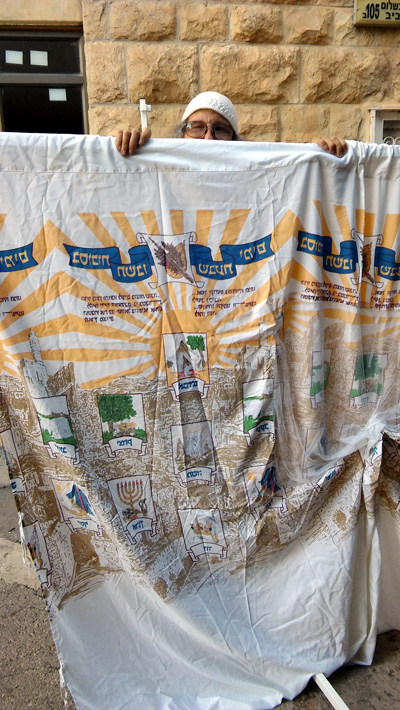 An example of the wall. When you have the walls up wrap the walls with 3 rows of rope on the bottom of the walls. An example of the wall. When you have the walls up wrap the walls with 3 rows of rope on the bottom of the walls.Don’t forget to put away all the bags that the Sukkah parts were in. You will need then for Isru Chag-Sukkot. |
2) side poles snap into the columns. Don’t forget the center beam.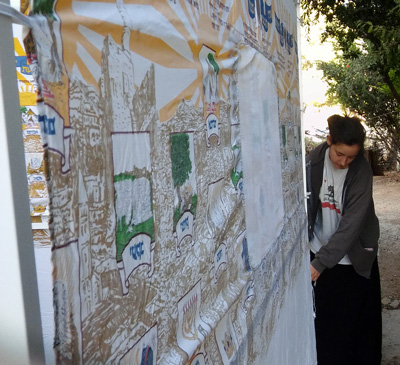 The walls slide into the Top and Bottom Rows. Tie the walls to the frame tightly so that the wall will not move in the wind. 3) The walls slide into the Top and Bottom Rows. Tie the walls to the frame tightly so that the wall will not move in the wind.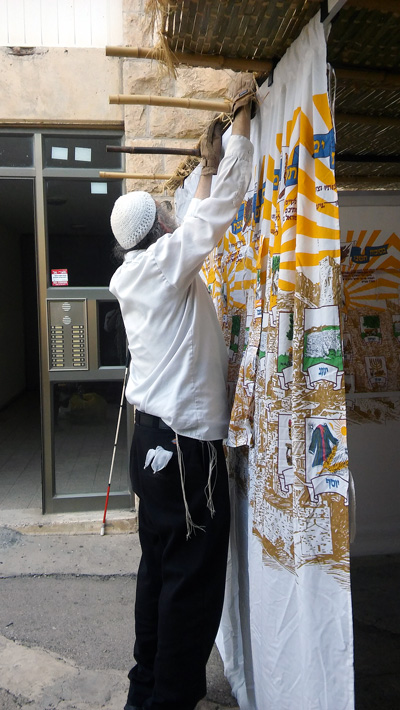 Next put the Bamboo poles on the top using plastic clips and put the schach on top of the Bamboo poles. 4) Next put the Bamboo poles on the top using plastic clips and put the schach on top of the Bamboo poles.5) When you have the walls up wrap the walls with 3 rows of rope on the bottom of the walls. |
||||||||||||||||||||||||
Safety tips for SukkotUnited Hatzalah emergency medics present safety guidelines for the upcoming Sukkot holiday, to prevent injuries during sukkah-building. The season for building Sukkot has just begun and United Hatzalah volunteers have already treated dozens of injuries that occurred while people were building Sukkot. The Spokesperson’s department has therefore issued a series of basic safety tips for the holiday. When building a Sukkah one should always be careful when standing or climbing in high places. It is recommended to use proper safety gloves so as to avoid injuries to the hands. Make sure that ladders are stable and being held by a second person. It is strongly recommended to work in pairs if not larger groups so that one person can ground the ladder properly and call emergency services should an accident occur. It is imperative to keep all nails, screws and tools away from the reach of small children. When lighting candles for Shabbat or the holidays, be sure to keep them in a safe location, not near flammable materials, out of the wind, and also out of the reach of small children. Keep the candles on a special platform that won’t burn such as a metal or glass tray and keep them away from the walls of the Sukkah or any flammable decorations. Eli Beer, Founder and President of United Hatzalah explained that: “In previous years United Hatzalah volunteers have treated dozens of injuries due to people falling off of ladders during the building and decorating of Sukkahs. Some of these instances, unfortunately, have resulted in fatalities and serious injuries. We ask the public to take extra care this year while building, residing in and taking down their Sukkahs. Our volunteers will be on hand at all times during the holiday to provide care for any and all who need it. We wish you and all of Israel a happy and healthy holiday.” |
|||||||||||||||||||||||||
Soldier’s Guide To Staying Outdoors |
|||||||||||||||||||||||||
The UshpizinBy Yanki Tauber https://www.chabad.org/library/article_cdo/aid/4485/jewish/The-Ushpizin.htm Who and What Are the Ushpizin“Ushpizin” is Aramaic for “guests,” a reference to the seven supernal guests, “founding fathers” of the Jewish people, who come to visit us in the sukkah (the branch-covered hut in which we eat our meals throughout the festival of Sukkot), one for each of the seven days of the festival:
Translated into English, the word “ushpizin” loses some of its mystery and otherworldliness. Yet these “guests” are indeed quite mysterious (at least until we learn more about them) and otherworldly (at least until we make them part of ours). We use the Aramaic term because our source of information about these mystical guests is from the Zohar, the fundamental Kabbalistic work written in that mystical language. Sukkot GuestsGuests are an important part of the Jewish home all year round—there were even Jews who would never partake of a meal in their own home unless there was at least one guest, preferably a needy wayfarer, with whom to share it—but especially on Shabbat, and even more especially on the Jewish festivals (Passover, Shavuot, Sukkot, Rosh Hashanah, etc.). On the festivals, there is a special mitzvah (divine commandment),
“You shall rejoice on your festival” (Deuteronomy 16:14), and, our sages explain, the only true joy is shared joy. Indeed, the verse in full reads: “You shall rejoice in your festival—you, your son, your daughter, your manservant, your maidservant, the Levite, the stranger, the orphan and the widow who are within your cities.” In the words of Maimonides (Mishneh Torah, Laws of the Festivals 6:18): “When one eats and drinks, one must also feed the stranger, the orphan, the widow and other unfortunate paupers. But one who locks the doors of his courtyard, and eat and drinks with his children and wife but does not feed the poor and the embittered soul—this is not the joy of a mitzvah, but the joy of his belly . . .”
If guests are integral to festival joy, they are even more so to Sukkot. Sukkot is the festival of Jewish unity; in fact, the Talmud states that “it is fitting that all Jews should sit in one sukkah.”2 If this is logistically difficult to arrange, it should, at the very least, be implemented in principle. We cram as many guests as possible into our sukkah, demonstrating that we fully intend to implement the Jewish communal sukkah to the full extent of our ability, each in our own domain. There is even a story told about a certain chassidic master who, because he lacked a guest, the Patriarch Abraham refused to enter his sukkah (why Abraham was there—more on that later). The Kabbalah of the UshpizinAnd so we come to the ushpizin. As we fill our sukkah with earthly guests, we merit to host seven supernal guests. While all seven ushpizin visit our sukkah on each of the seven nights and days of Sukkot,3 each supernal “guest” is specifically associated with one of the festival’s seven days, and is the “leading” or dominant ushpiza for that night and day.4
The Kabbalists teach that these seven leaders—referred to in our tradition as the “seven shepherds of Israel”—correspond to the seven sefirot, or divine attributes, which categorize G‑d’s relationship with our reality, and which are mirrored in the seven basic components of our character (man having been created “in the image of G‑d”).
As each supernal “guest” graces our sukkah, he empowers us with the particular quality that defines him. This is the deeper reason that they are called the “shepherds of Israel,” for like a shepherd who provides nourishment for his flock, these seven leaders nourish us their spiritual essence: Abraham feeds us love; Isaac, self-discipline; Jacob, harmony and truth; and so on.
And while these seven great souls are our “shepherds” all year round, the seven days of Sukkot are a time when their presence in our lives is more pronounced and revealed. As we enter the “temporary dwelling” of the sukkah, freeing ourselves from the dependence we developed on the material comforts of home and hearth, we are now in a place in which our spiritual self is more revealed and accessible. In this place the ushpizin visit us, empowering us to connect the seven dimensions of our own soul’s “divine image” with its supernal source in the divine sefirot, feeding, nourishing and fortifying our spiritual self for the material year to come. The seven sefirot, or divine energies, we are fed by the ushpizin are:
Chronologically, the order would be: Abraham, Isaac, Jacob, Joseph, Moses, Aaron and David; in many communities, the ushpizin are welcomed into the sukkah in the order in which they historically lived upon our earth. However, when aligned with the supernal sefirot (divine attributes) which they embody and represent, Joseph, who represents the sefirah of yesod, follows Aaron, who represents hod. Talmud, Sukkah 27b. This can be compared with the fact that each sefirah incorporates within it elements of all seven. In the Jewish calendar, the day begins at nightfall and extends to the following evening. Thus, Shabbat begins Friday evening at sunset and ends at nightfall on Saturday; the same is the case with the festival. Thus, Abraham is the leading ushpiza for the first night of Sukkot and the day that follows, Isaac graces our sukkah on the second evening of the festival and on the following day, and so on. By Yanki Tauber |
|||||||||||||||||||||||||
How to Bind the Lulav BundleChabad.org Staff https://www.chabad.org/library/article_cdo/aid/1019429/jewish/How-to-Bind-the-Lulav-Bundle.htm
In order to beautify the mitzvah, we fasten together the lulav, hadassim and aravot (palm frond, myrtle branches and willow branches). For those who’ve never done it before, binding the lulav can be a bit tricky. In most cases, your Four Kinds vendor will do this for you.
Though technically one can bind them together with any material, the custom is to use lulav leaves—thus no foreign substance will separate between the Four Kinds and the hands of the person fulfilling the mitzvah. There is no single universally followed way of tying the lulav. Different methods are employed in different communities. In most communities, the three kinds are bound together by way of a special holder woven of lulav leaves, which slides up the bottom of the lulav and has pockets for the hadassim and aravot. This holder is then securely tied to the lulav with a strip of lulav leaf. The hadassim should be placed in the pocket to the right of the person holding the lulav (as he will be shaking it on Sukkot), and the aravot to the left. The thickish green exterior of the lulav’s spine should be facing the person. |
|||||||||||||||||||||||||
|
It is customary to have three lulav-leaf ring ties around the lulav, symbolizing our three Patriarchs. As such, in addition to the ring with which the holder is fastened, (at least) another two rings are fastened around the lulav’s midsection. Chabad CustomChabad custom is to bind the lulav on the day prior to the holiday, while in the sukkah.
In addition, Chabad custom is not to use the woven holders, but rather to tie the hadassim and aravot directly to the bottom of the lulav using three lulav-leaf strips (all bound within the span of one handbreadth): |
|||||||||||||||||||||||||
|
A lulav bound according to Chabad tradition. One aravah (willow branch) is placed on the right of the lulav (meaning, to the right of the person holding the lulav, as above) and one on the left. Then, one hadas (myrtle) is placed on the right of the lulav and one on the left (somewhat covering the aravot), and a third hadas is placed in middle—a bit towards the right side. Once these are all in place, they are all bound together with the three lulav strips.
(Many have the custom of using more than three hadassim. In 1991, the Rebbe suggested that everyone use at least six hadassim. The extra hadassim are just added to the mix.)
Then, in addition to the three lulav ties that hold together the three species, another two ties are fastened higher up, around the midsection of the lulav itself—with the lower one covered, at least partially, by the hadassim and aravot.
Notes:
By Chabad.org Staff © Copyright, all rights reserved. If you enjoyed this article, we encourage you to distribute it further, provided that you comply with Chabad.org’s copyright policy. |
|||||||||||||||||||||||||
 Hoshana Raba wish list Hoshana Raba; May Hashem grant you a wonderful year with all your heart’s wishes for the very best always! |
|||||||||||||||||||||||||

Guide for Sukkot“You shall dwell in booths for a seven-day period so that your generations will know that I caused the Children of Israel to dwell in booths when I took them.”Breslev Israel staff | Posted on 05September2023 https://breslev.com/259022/ “You shall dwell in booths for a seven-day period…So that your generations will know that I caused the Children of Israel to dwell in booths when I took them from the land of Egypt.” Overview of the HolidayOne of the three pilgrimage festivals that the Jewish people were commanded to celebrate each year is Sukkot – the Festival of Booths, which lasts a week from the 15th to the 21st of Tishrei (and in the Diaspora until the 22nd). The first day is a Yom Tov, and the rest of the 7 days are known as the Intermediate Days of the Festival. (A separate Festival –Shemini Atzeret or Simchat Torah – immediately follows Sukkot on the 8th day, the 22nd of Tishrei in Israel and on the 23rd in the Diaspora).
The source in the Torah is in Vayikra (23:34-35,41): “On the fifteenth day of this seventh month is the Festival of Booths, a seven day period for Hashem. On the first day is a holy convocation; you shall not do any laborious work…You shall celebrate it as a festival for Hashem, a seven-day period in the year, and eternal decree for your generations; in the seventh month shall you celebrate it.”
Dwelling in the sukkah (booth) is an integral part of the Festival. During the week we spend more time in the sukkah than in our house. It is an uplifting spiritual experience to live in the sukkah, and a quality family time as well.
The Sefer Chinuch (the Book of Education, which explains the 613 Mitzvot (Commandments) according to their Biblical source) writes concerning the mitzvah of dwelling in the sukkah: “One of the roots of the mitzvah is explicit in the Torah: In order that we should remember the great miracles that G-d made for our forefathers in the desert during the Exodus from Egypt. He surrounded them with the Clouds of Glory so the sun wouldn’t harm them in the day and the frost at night. Some explain that we commemorate the actual booths that the Children of Israel made in the desert.”
Even though the Exodus was in the month of Nissan, we weren’t commanded to make the sukkot in Nissan, because in the balmy days of Nissan farmers are accustomed to leave their homes and enjoy themselves in the shade of booths outdoors. It wouldn’t be so obvious that we are making the sukkah as a mitzvah of Hashem. During Tishrei, however, when the nights are cold and the rainy season is about to begin, farmers return to their homes. When we do the opposite, leaving our homes and dwelling in a sukkah, we are demonstrating that the purpose of the sukkah is the mitzvah of Hashem.
Sukkot falls in the harvest season, a time of plenty, when the farmer brings his produce into his silo. A man naturally feels haughty when he is wealthy, and thinks: “My strength and the might of my hand have made this wealth.” To counteract our tendency to arrogance the Torah commands us to leave our houses filled with the abundance of wealth in the harvest-time and to dwell in a sukkah. All a man needs for happiness is G-d’s protection symbolized by the sechach (the leafy covering over his head in the sukkah); even in the flimsy, temporary booth he can be full of joy in appreciation of what G-d has given him.
The Midrash says: “Why do we build the sukkah after Yom Kippur? Because on Rosh Hashanah G-d judges the entire world, and on Yom Kippur the judgment is sealed. Perhaps the Jewish people are obligated to go into exile? Therefore they make a sukkah and exile themselves from their homes to the sukkah.” Living in the SukkahThe sukkah should be made as beautiful as possible. Our Sages said: “Glorify Him with the mitzvot. Make a beautiful sukkah, beautiful lulav, etc. As it says: ‘This is my G-d and I will glorify Him…’” It’s a mitzvah for a person to attend to building the sukkah himself.
The Torah instructs us to live in the sukkah the way one would live in his home. The sukkah becomes his place of residence for the seven days of Sukkot. He should eat all his meals and entertain guests there. One should sleep in the sukkah even if he only needs to nap. Building the SukkahThe walls of the sukkah can be built from any material: wood, plastic, metal or stone; it must be sturdy enough to be immovable in an ordinary wind. For this reason, walls made of fabric are problematic and might render the entire sukkah as unkosher. The Dimensions of a SukkahA sukkah has at least three walls. The walls may not be elevated off the ground more than 3 tephachim (24 cm.) so that a small animal can’t crawl inside. The height must be more than 10 tephachim (80 cm.) but less than 20 ama (9.60 meters). The width of the walls must be at least seven tephachim (56 cm.). Sechach (Leafy “Roof”)After setting up the walls, one places the sechach (the leafy covering that provides shade) as the roof, using thin, narrow boards, placed horizontally on top of the walls to support it. Many people use tree branches, palm fronds, or bamboo; specially prepared bamboo mats are available. The principal explained in the Oral Law is that the sechach must be something which has the following characteristics:
A sukkah may not be built under tree branches that make shade over the sukkah. The amount of sechach should be enough that the shade provided by the sechach in the sukkah is more than the sunlight that passes through, but not so much that no stars can be seen at night through the sechach, or that rain could not penetrate The Four Species (“Arba Minim”)The Torah states (Vayikra 23): “You shall take for yourselves on the first day the fruit of a citron tree, the branches of date palms, twigs of a plaited tree, and brook willows; and you shall rejoice before Hashem your G-d seven days.”
The Sefer Chinuch (the Book of Education) says:
“One of the roots of this mitzvah is that a man is affected by the actions that he does continuously, his ideas and feelings follow his actions. Because G-d wanted to bring merit to His Chosen People, He gave them many mitzvot so they would be affected beneficially by performing them daily.
“The Festival is a time of joy for the Jewish people, since it’s the harvest season, when they bring the fruits of their labor into the home and people are naturally happy. G-d commanded them to make a Festival at that time, so they will have the merit that their joy and happiness can be dedicated to His Name. Joy may cause a person to be drawn after materialism and forget his fear of Heaven, so the Creator commanded His people to take items in their hands to remind them that all their joy should be dedicated to His Name and His honor. He wanted these reminders to be items that bring joy, just like the time of year, and it is well known that the four species are naturally endowed to bring joy to the heart of man when he gazes upon them.
“Furthermore, the four species resemble precious organs of a human being:
The mitzvah of the four species teaches us that we must seek to bring all the Jewish people closer to their Father in Heaven, no matter how distant they may be. We find in the Midrash that each one of the four species symbolizes a different type of Jew:
What does G-d do with them? To destroy them is unthinkable. Rather G-d says, ‘Bind them together in one bond and they will atone for each other.’”
The Midrash teaches us that even those that have no taste or scent – neither Torah nor good deeds – must not be distanced; rather we are to bind them together with the species that have a scent so they will absorb the good scent. In this way we must reach out to our estranged brothers and bring them close to the Torah scholars, who have both “taste and scent,” and the scholars will have good influence upon them until they come to resemble the Etrog themselves, possessing Torah and good deeds.
The mitzvah of the four species can only be fulfilled if all the four are held together simultaneously. The Jewish people are the same, even though we are so different from one another, we must always be unified. “You Shall Rejoice on Your Festival”On all Holidays we are commanded, “You shall rejoice on your Holiday,” but on Sukkot the joy is doubled and tripled, “And you shall be only joyous.” In our prayers we call the Festival of Sukkot “the time of our rejoicing.” We are enjoined to show our rejoicing by eating meat and drinking wine, wearing fine clothing, dancing, singing and laughter.
On the other Festivals we rejoice because of a specific historical event, such as the Exodus on Pesach or the Giving of the Torah on Shavuot. But on Sukkot, simcha (joy) is the essence of the Festival. Therefore the mitzvah to rejoice on Sukkot is very great. We must rejoice in truth, with all our heart. We rejoice that we have G-d, we’re happy for the connection we have with Him with all our being. We’re happy He cares for us like a father cares for his beloved child. Ushpizim – Exalted GuestsThe Zohar HaKadosh writes: “When the People of Israel leave their homes and enter the sukkah for the sake of G-d’s Name, they merit to welcome the Divine Presence there, and all the seven shepherds descend from Gan Eden and come to the sukkah as their guests.” The seven shepherds include the Patriarchs of the Jewish people who wandered from exile to exile and attained rest only after great toil and travail.
It is customary, upon entering the Sukkah, to invite the ushpizim to enter by reciting the traditional Aramaic formula contained in the prayer book:
Among the Sephardim, it is customary to prepare an ornate chair in the sukkah, which is covered with a fine cloth and upon which holy books are placed. The host declares: “This is the chair of the ushpizim.”
Since the sukkah is a dwelling for the Divine Presence and the exalted guests, it is proper that one also invite guests of flesh and blood, i.e., poor people, to share one’s meals in the sukkah, to please his Heavenly guests.
The sukkah is the dwelling place of the Divine Presence, so one must be careful not to speak meaningless conversation in the sukkah, certainly, even more so, he must avoid slander and gossip. Rather one should focus on words of Torah. One should behave in a very honorable way in the sukkah so as not to drive away the Divine Presence. Names of the FestivalThe Festival has a number of names:
The Pilgrimage to JerusalemSukkot is one of the three Festivals in which the Torah commands the People of Israel to go up to Jerusalem, to the Holy Temple, and to offer special sacrifices. The three Festivals are Pesach (Passover), Shavuot, and Sukkot. Today many are accustomed to visit the Western Wall in Jerusalem to commemorate this mitzvah.
The three Pilgrimage Festivals are connected to working the land:
Hoshana RabaThe Hoshana prayers are recited in the Synagogue each day of Sukkot as we circle the bima (lectern) holding the lulav and etrog. These prayers are for redemption, and are referred to as Hoshanot because each stanza of the prayer is accompanied by the word “hoshana” – a combination form of the words “hosha” and “na” – bring us salvation, please. The seventh day of Sukkot is called Hoshana Raba – literally, the great Hoshana, because on this day more Hoshana prayers are recited than any other day in Sukkot.
Hoshana Raba marks the day when the judgment, which begins on Rosh Hashanah, is sealed. At the beginning of the period, on Rosh Hashanah and Yom Kippur, the entire world passes before G-d in individual judgment. On Sukkot, the world is judged concerning water, fruit, and produce. The seventh day of the Festival, Hoshana Raba, is the day that this judgment is sealed. Because human life depends on water and all depends on the final decision, Hoshana Raba is invested with similarity to Yom Kippur and is marked by intense prayer and repentance.
We find in a Midrash: G-d said to Avraham: “I am one and you are one. I will grant your descendants one single day on which they can atone for their sins – Hoshana Raba.
The Mateh Moshe explains that G-d told Avraham that should Rosh Hashanah be insufficient to atone for their sins, then Yom Kippur will atone. And if Yom Kippur does not, then Hoshana Raba will.
Why was this promise made specifically to Avraham? Avraham’s light began to illuminate the world after twenty-one generations [counting from Adam]. Similarly, even if Israel’s light is late in shining, it will not be delayed for more than twenty-one days after Rosh Hashanah – i.e., on Hoshana Raba.
The custom is to remain awake all night on Hoshana Raba and to read from a special Tikkun. The essential character of the day is prayer and the awakening of Divine mercy at the time of the sealing of judgment and the issuing of “notes of decision” – the verdicts. This is the source of the custom of wishing one another a pitka tava – Aramaic for a “good note.”
|
|||||||||||||||||||||||||

While most people put up sukkahs, police are taking them downTwo sukkahs, at least one of which had engineering permits, dismantled by police in Jerusalem.Arutz Sheva Staff, 19September2021 https://www.israelnationalnews.com/News/News.aspx/313737 The sukkah in Meah ShearimJerusalem municipality This year, however, police claimed that the sukkah lacked the requisite permits and that it posed a threat to the safety of the public. No objections were raised, and the sukkah was taken apart. The night before, however, an hours-long standoff resulted after over 200 police officers arrived in the Meah Shearim neighborhood of Jerusalem in order to dismantle the sukkah belonging to Rabbi Moshe Bransdorfer. This sukkah, too, has been built in the same fashion for years. It extends from a second-floor apartment and is supported on iron scaffolding, and according to accounts provided to Behadrey Haredim, it had been approved by none less than the Jerusalem Municipality’s own choice of engineer. Nonetheless, several private individuals and a medical clinic situated near the sukkah complained to police, who in turn claimed that the sukkah was a public hazard. “The sukkah was built on high scaffolding and posed a real risk to life and property, while harming passersby and the public using the medical center located there, which even filed a complaint to the municipality,” the police stated. The saga began last Tuesday, when police made their first visit to the sukkah and a spontaneous protest erupted. Eventually, Rabbi Bransdorfer came to an agreement with police and the municipality, according to which the sukkah would be dismantled by his family the next day. Apparently this did not occur, and the municipality then offered an alternative site for the sukkah. The offer was accepted, but then representatives of Rabbi Bransdorfer appealed to the court for a stay of execution of the demolition, which was not granted. The case was due to be heard in court on Sunday, but police decided to take action on the Saturday night preceding, and arrived in huge numbers, prepared for the fierce protests that indeed erupted. Police arrived with trucks and cranes, raided the adjacent building, evacuated everyone from the sukkah and the apartment, and then began to demolish the structure. According to attorney Shreiber, representing Rabbi Bransdorfer’s family, several of the claims made by those demanding the demolition are false, including a claim made by the health clinic that the sukkah blocked access to it, which is blatantly untrue as photographs showed. In addition, the sukkah obtained the approval of two engineers and was built according to the engineers’ instructions, including protective fencing placed around the scaffolding. “Every single year, engineers inspect the sukkah and the same was true this year,” one source told Behadrey Haredim. “The sukkah complied with the most stringent safety measures. But due to pressure from social media, the municipality decided to issue a demolition order regardless.” |
|||||||||||||||||||||||||
Holiday HavdalahBy Naftali Silberberg Holiday havdalah can be divided into two categories: 1) Havdalah recited at the conclusion of a holiday. 2) The special havdalah recited on a holiday which falls on Saturday night. Havdalah is made when entering a day of lesser holiness. Since Shabbat is holier than all the holidays, we recite the havdalah when Shabbat leads into a holiday. Following the same logic, havdalah is not recited if a holiday leads into Shabbat. Havdalah at the Conclusion of a Holiday
Havdalah is recited at the conclusion of the following biblical holidays: Rosh Hashanah; Yom Kippur; the first days of Sukkot; Simchat Torah; Passover, both its first and last days; and Shavuot. If the final day of the holiday was Shabbat, then the exact same havdalah procedure as a typical Saturday night is followed. If the holiday ended on another weeknight, the procedure is very similar to the Shabbat havdalah, but with some differences:
Havdalah From Shabbat to a Holiday (“Yaknahaz”)Whether a holiday begins on a Saturday night or if Saturday night ushers in the second day of a holiday, that night’s holiday kiddush incorporates within itself the havdalah for Shabbat as well. The whole text of the kiddush/havdalah can be found in your standard or holiday prayer book. The following is the basic procedure:
Note: There are many activities which are forbidden on Shabbat but permissible on a holiday. All such activities must wait until one verbally “separates” between Shabbat and the holiday. This, however, does not have to wait for kiddush/havdalah, as a special havdalah themed insert, the Vatodi’enu paragraph, is inserted in the Amidah of the night’s prayers. Alternatively, one can say: “Baruch hamavdil bayn kodesh likodesh” — “Blessed is the One who separates between (the) holiness (of Shabbat) and (the) holiness (of the holiday).” Rabbi Naftali Silberberg is a writer, editor and director of the curriculum department at the Rohr Jewish Learning Institute. Rabbi Silberberg resides in Brooklyn, New York, with his wife, Chaya Mushka, and their three children. Click to Enlarge |
|||||||||||||||||||||||||

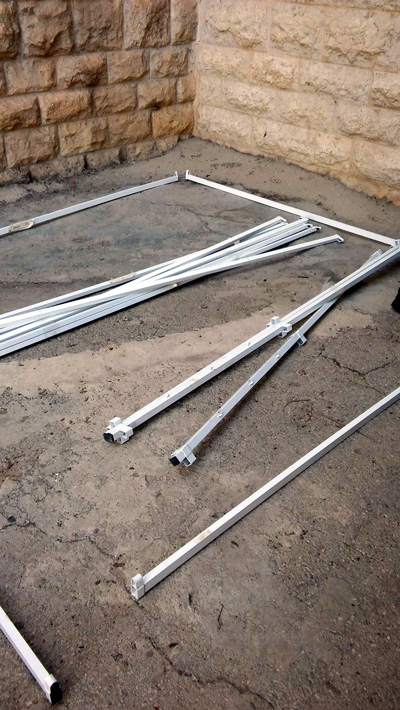
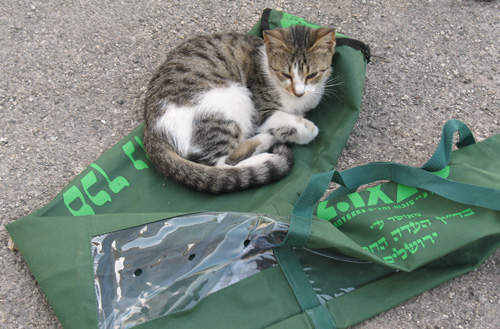
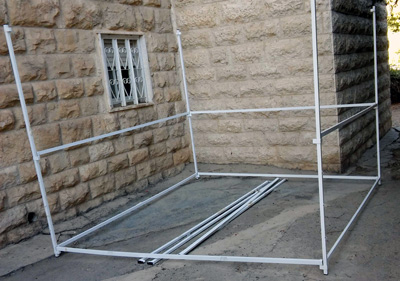
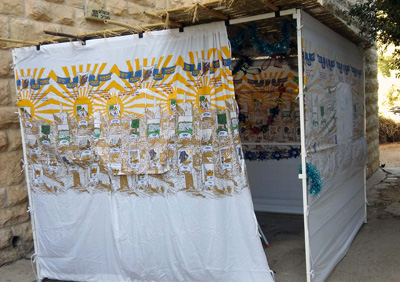
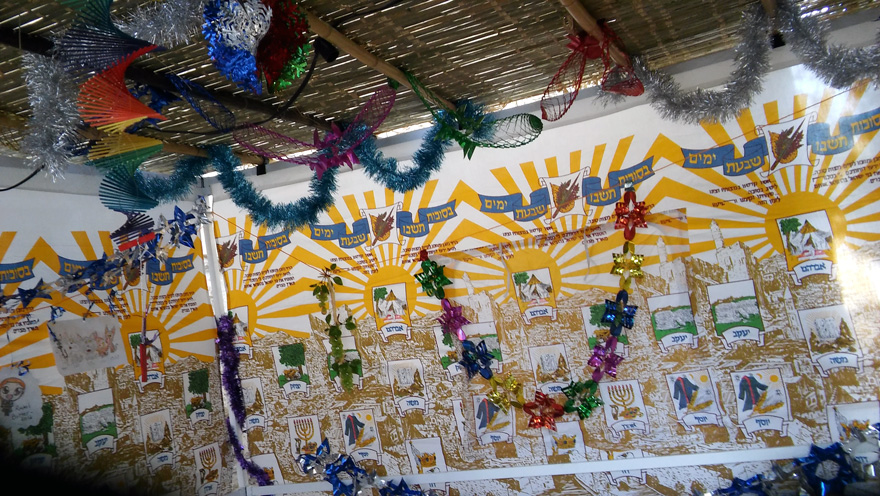
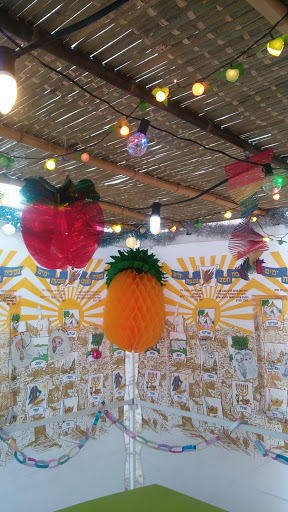
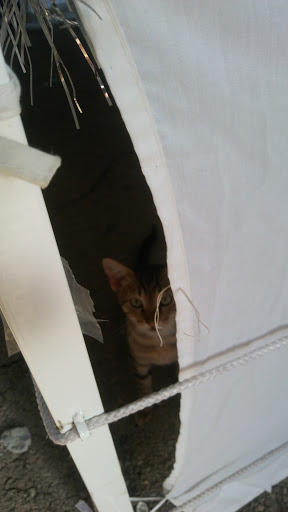
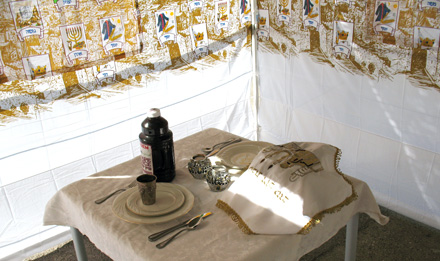
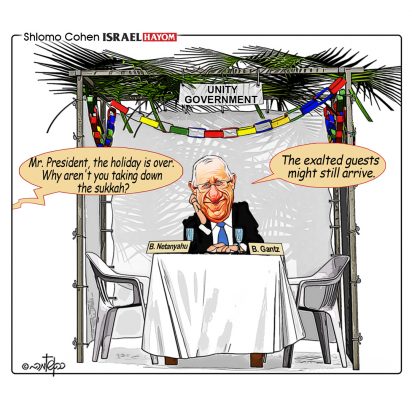

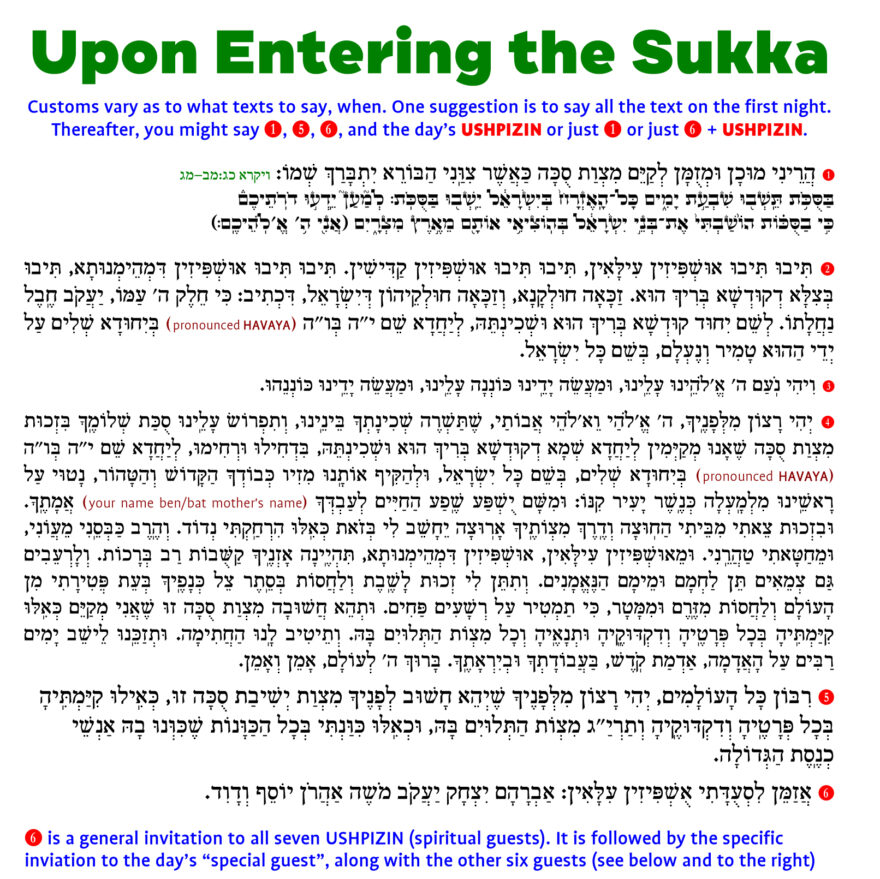



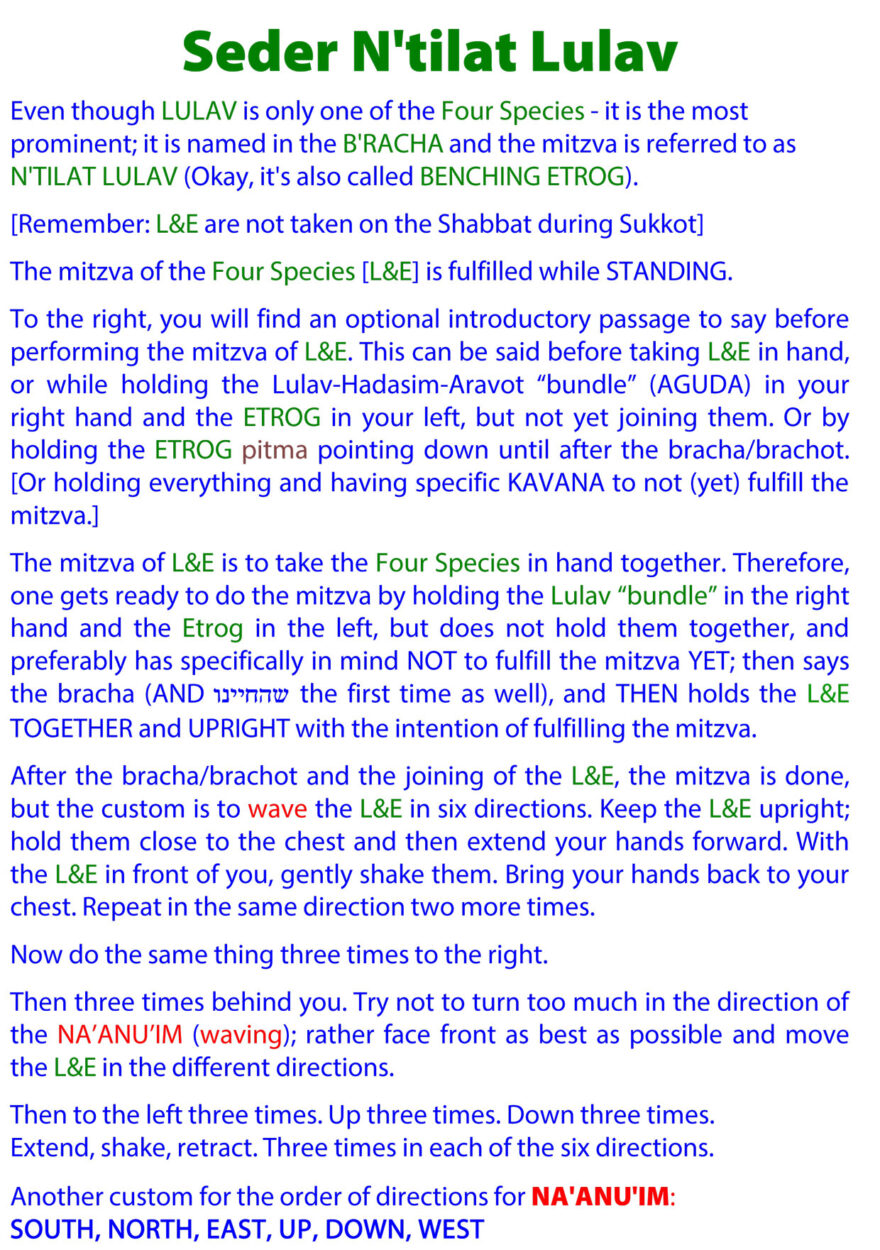
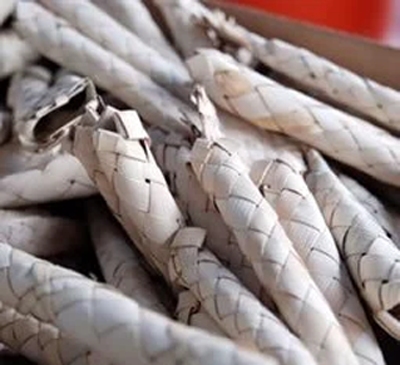




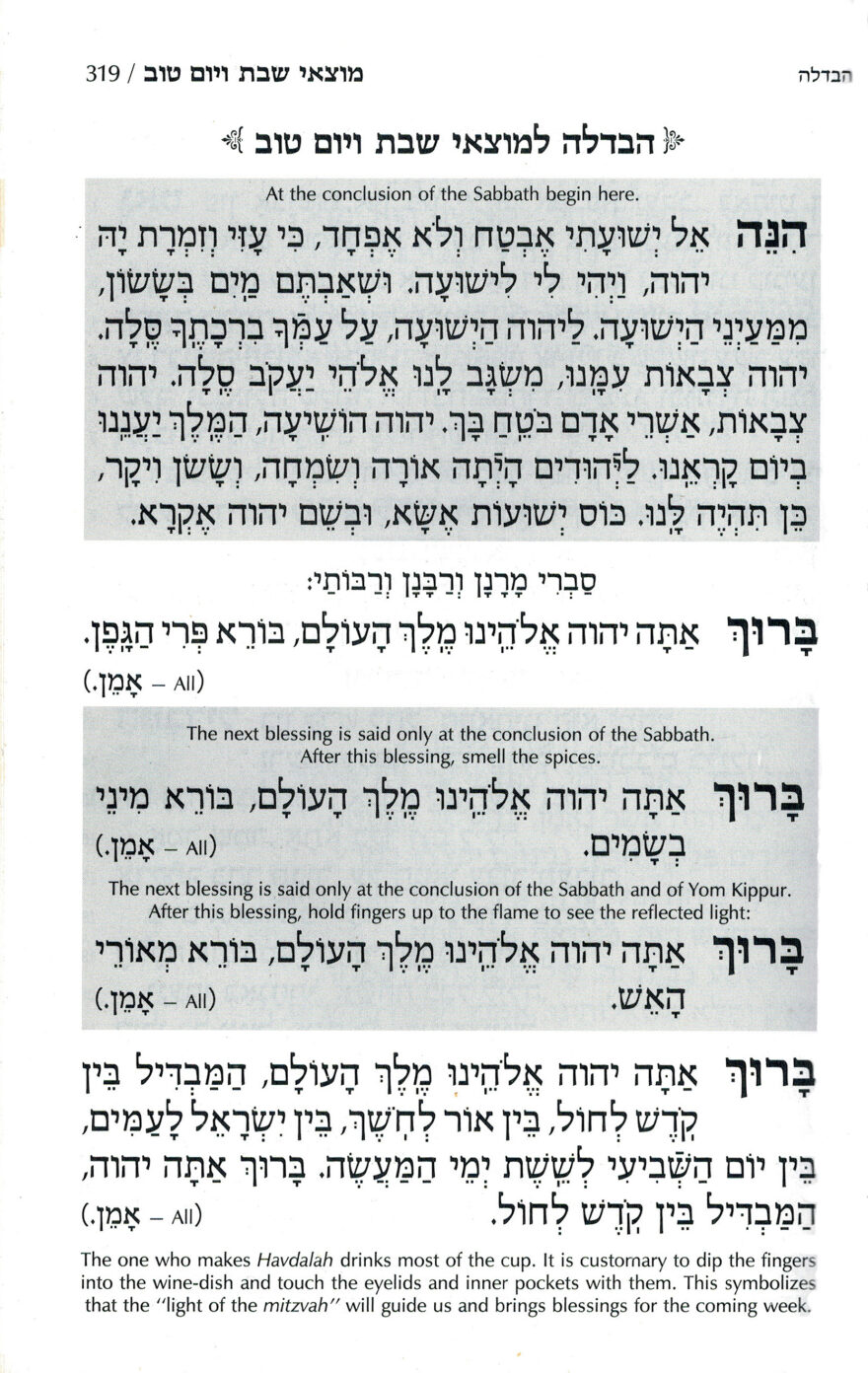

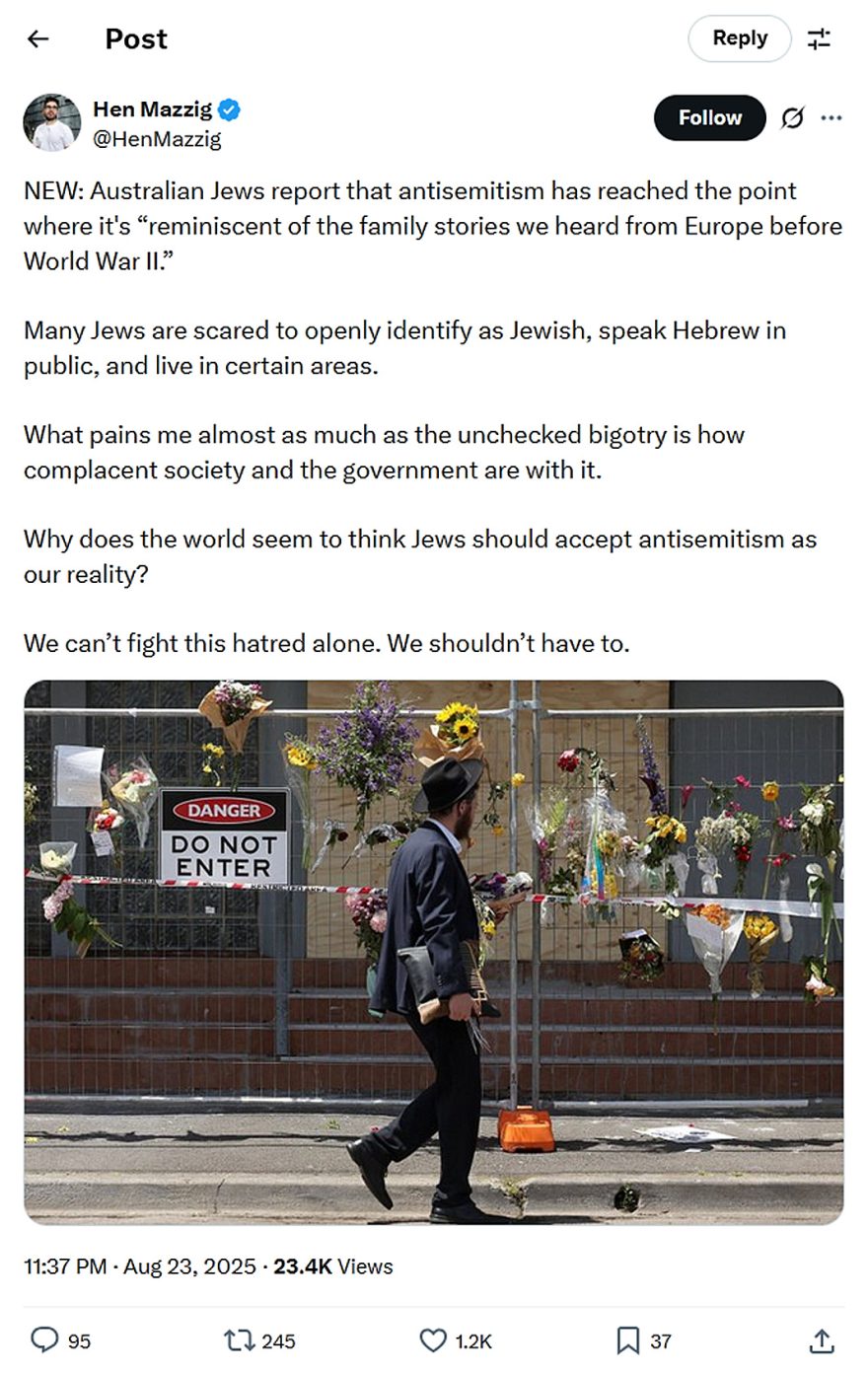



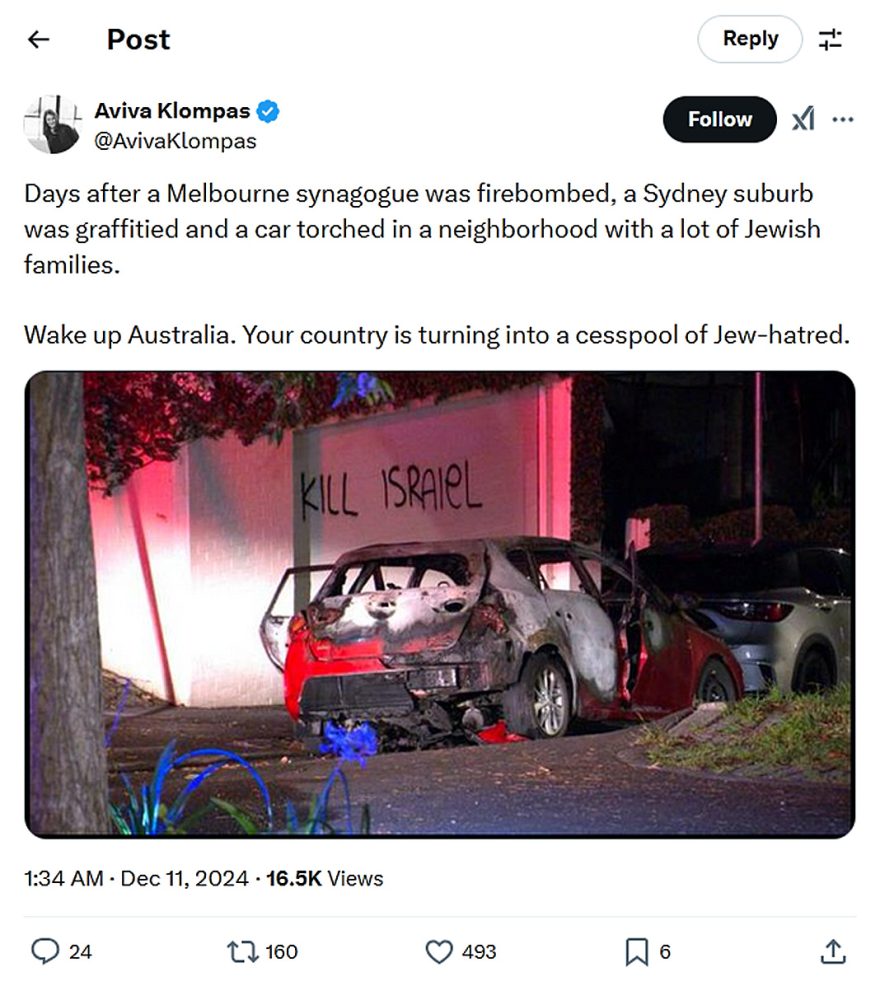

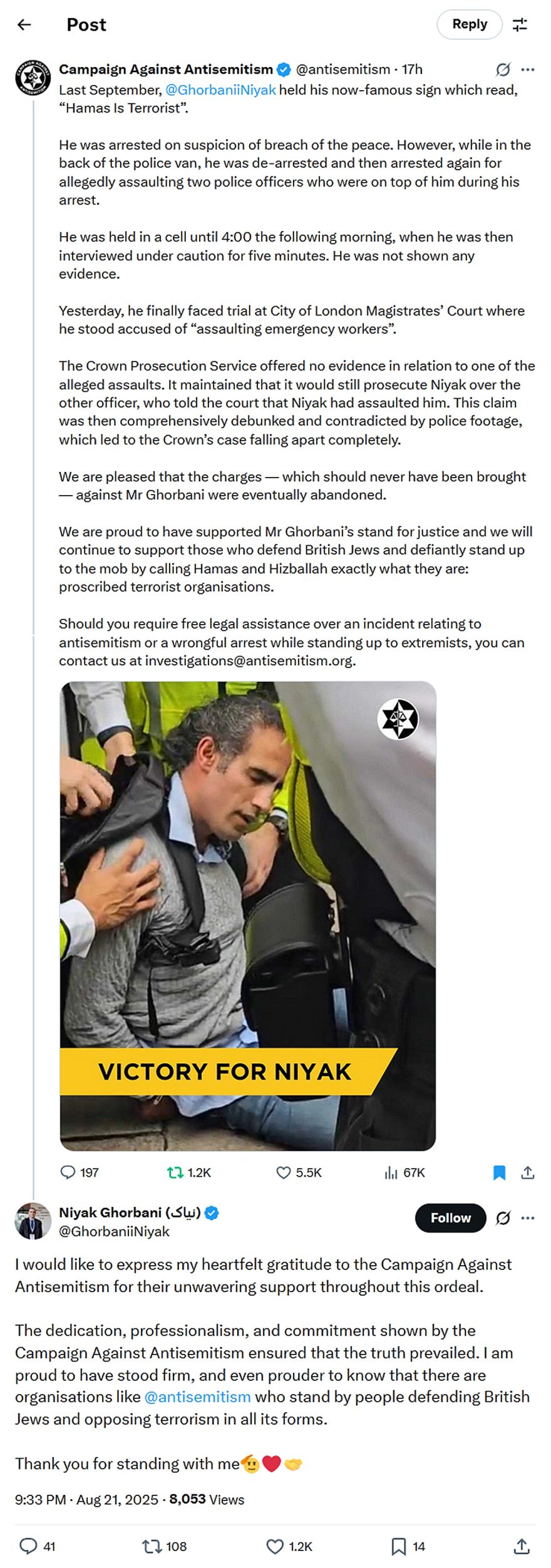
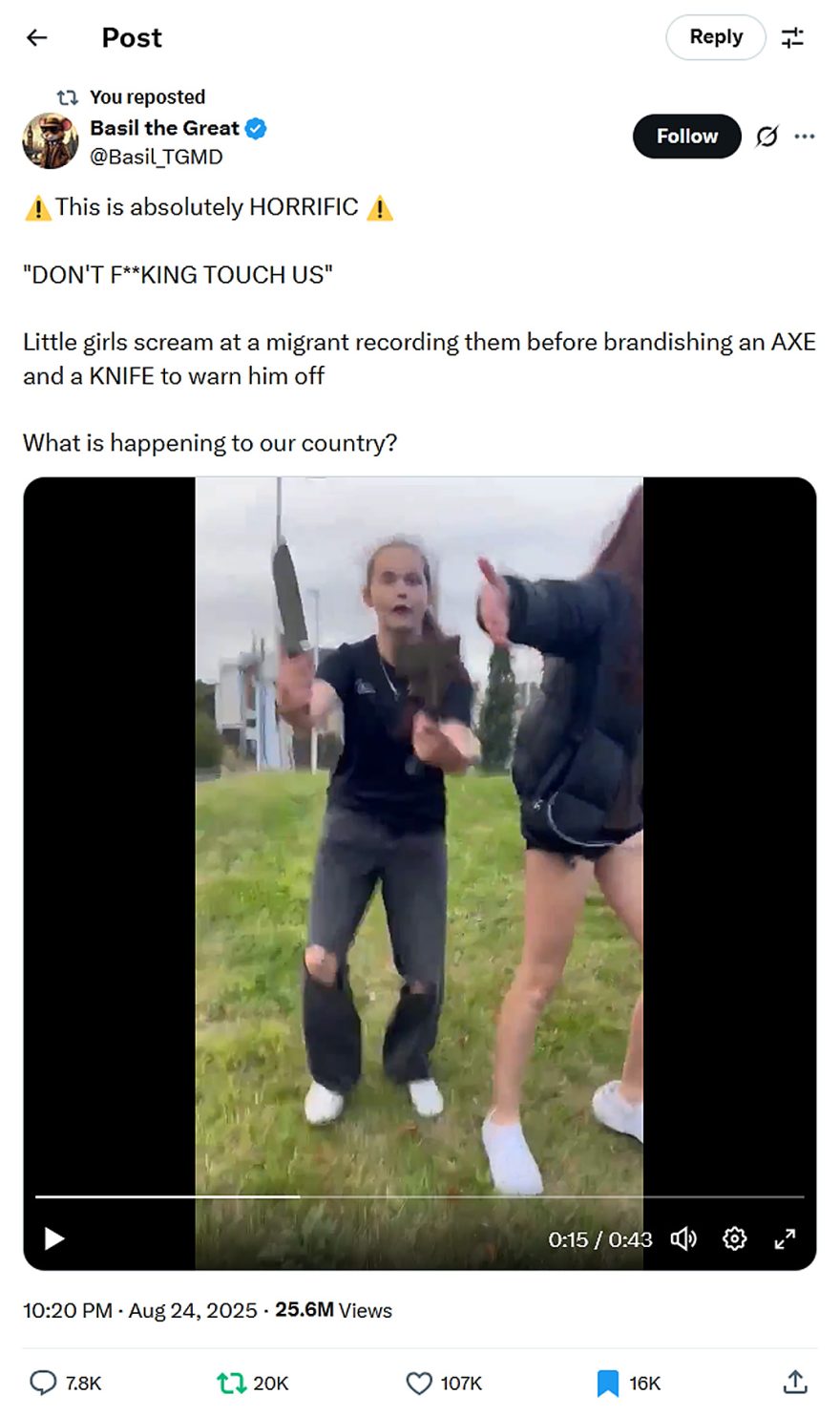


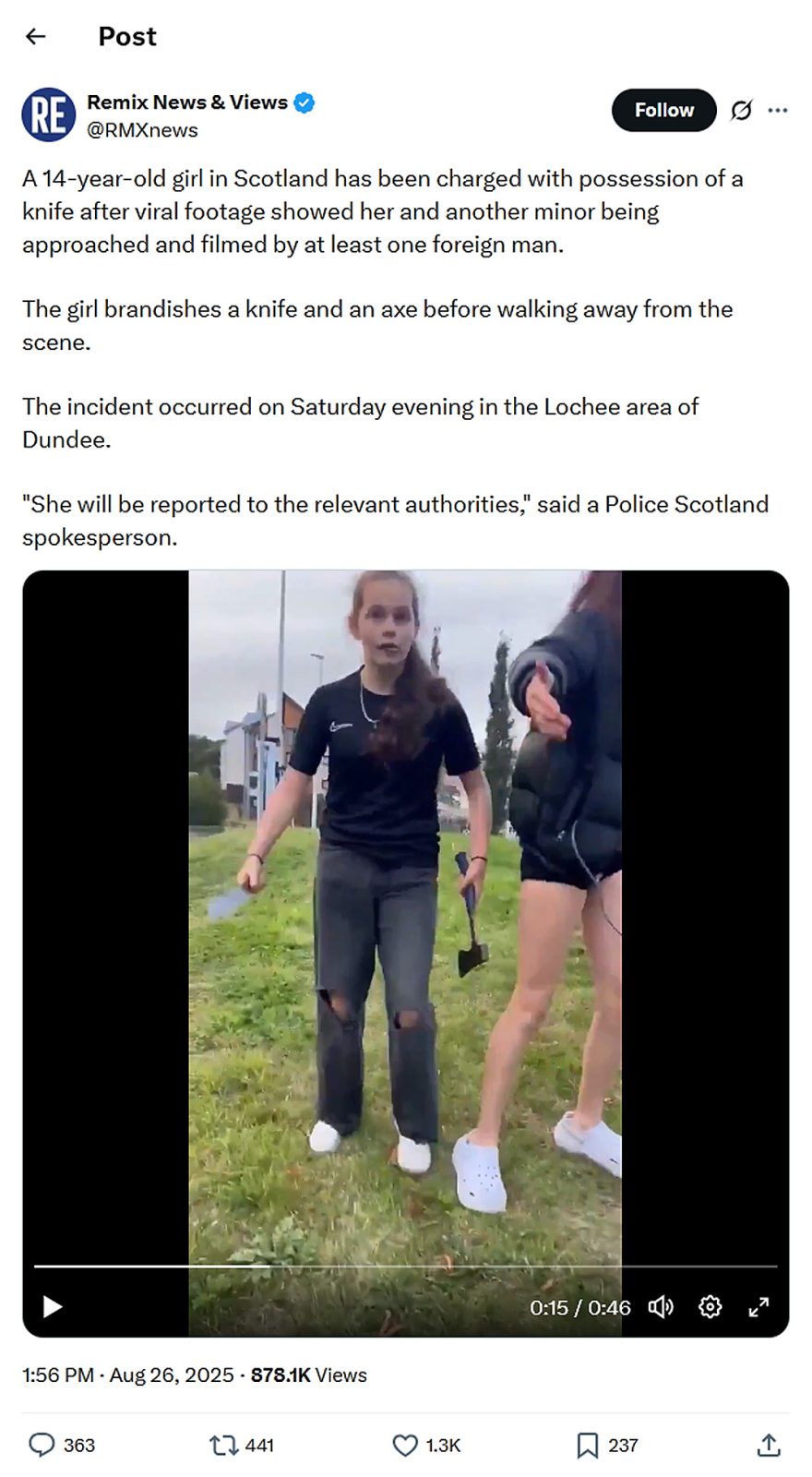



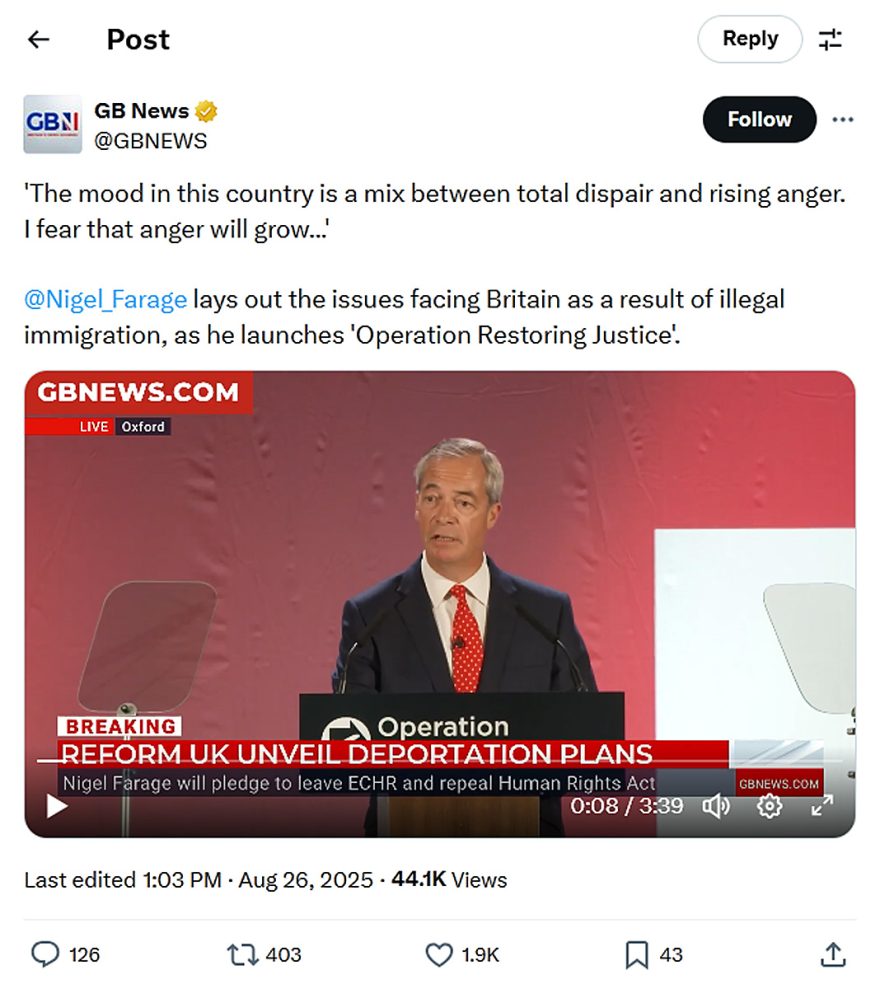


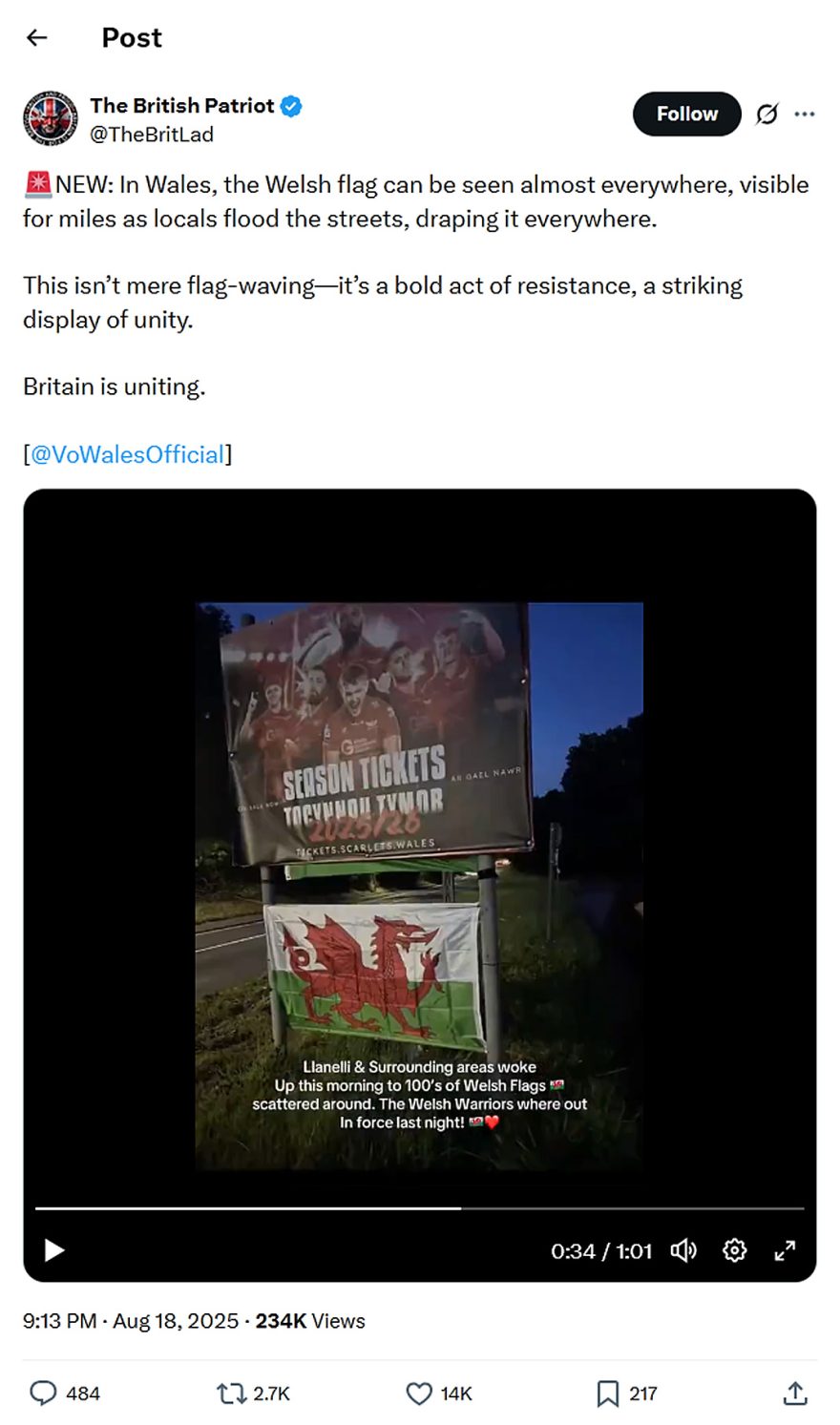
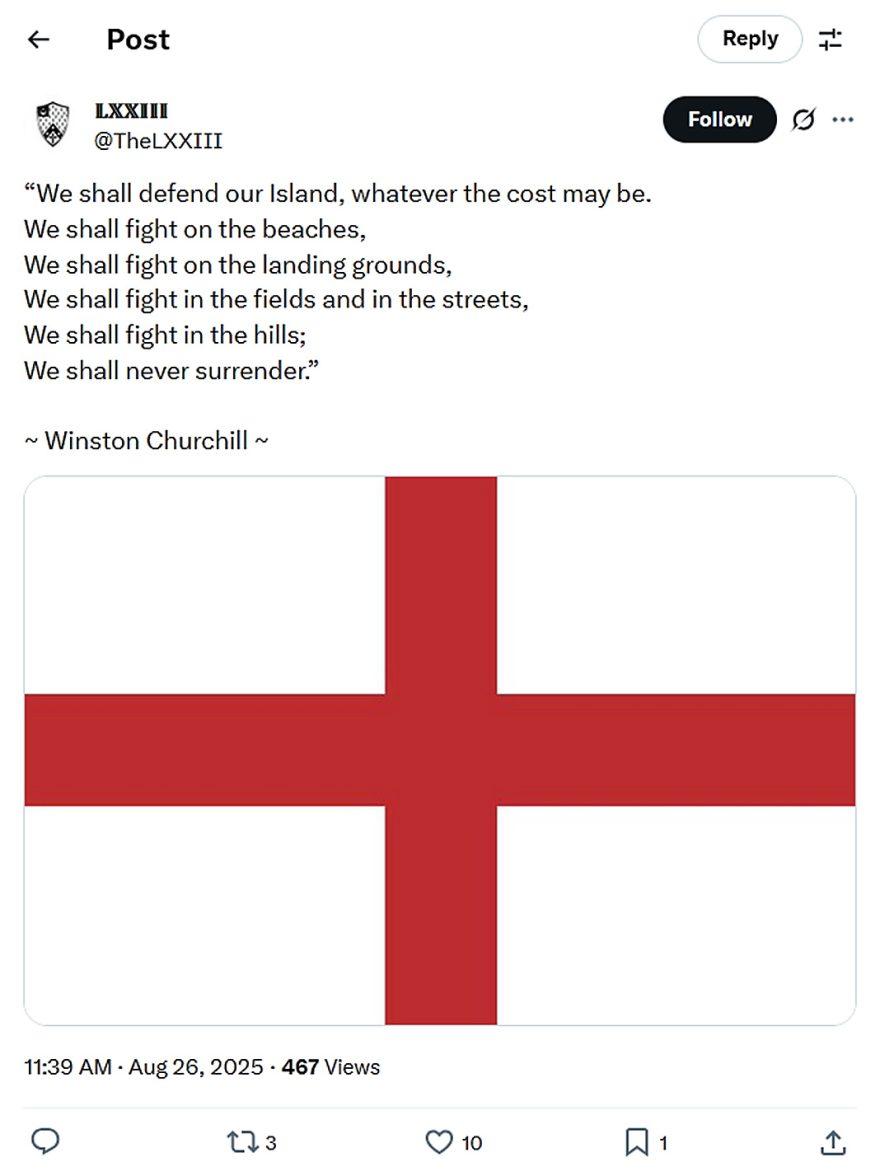
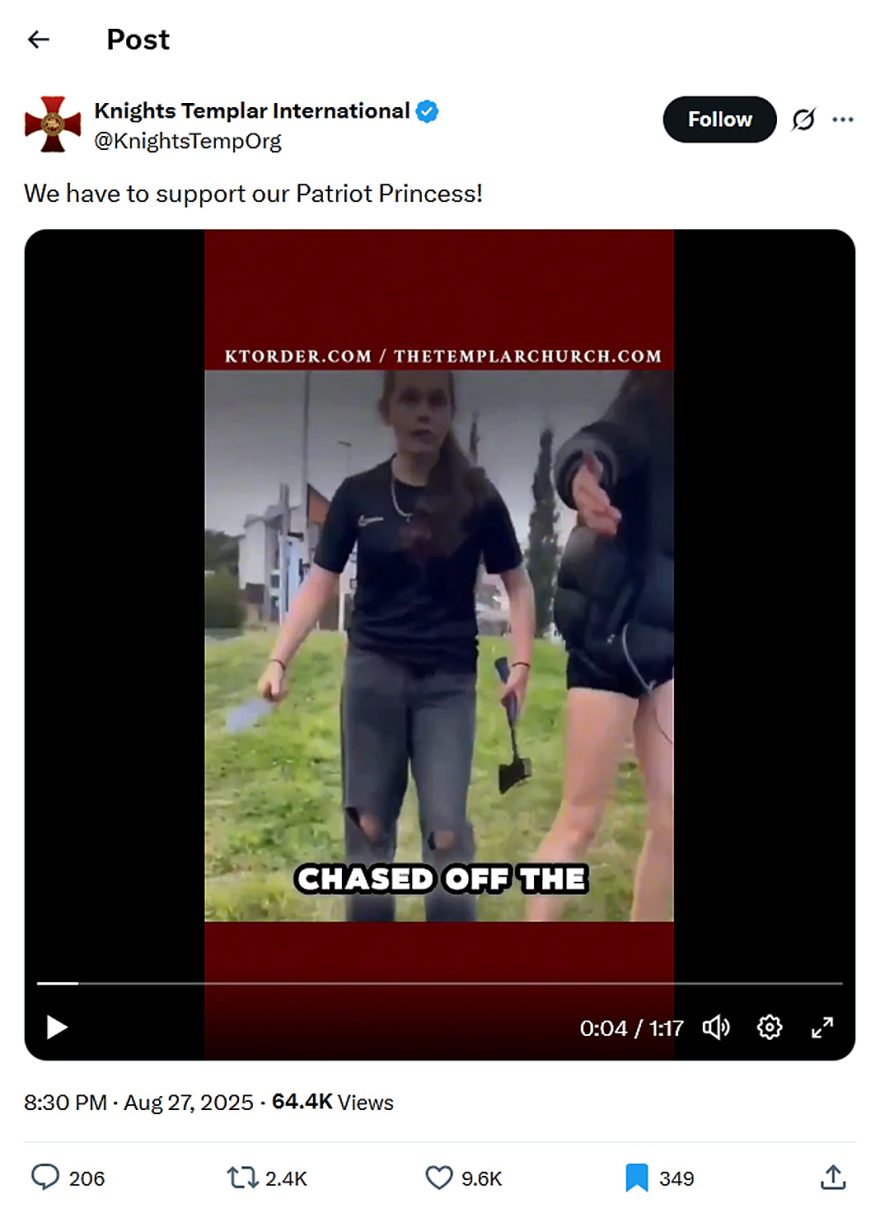


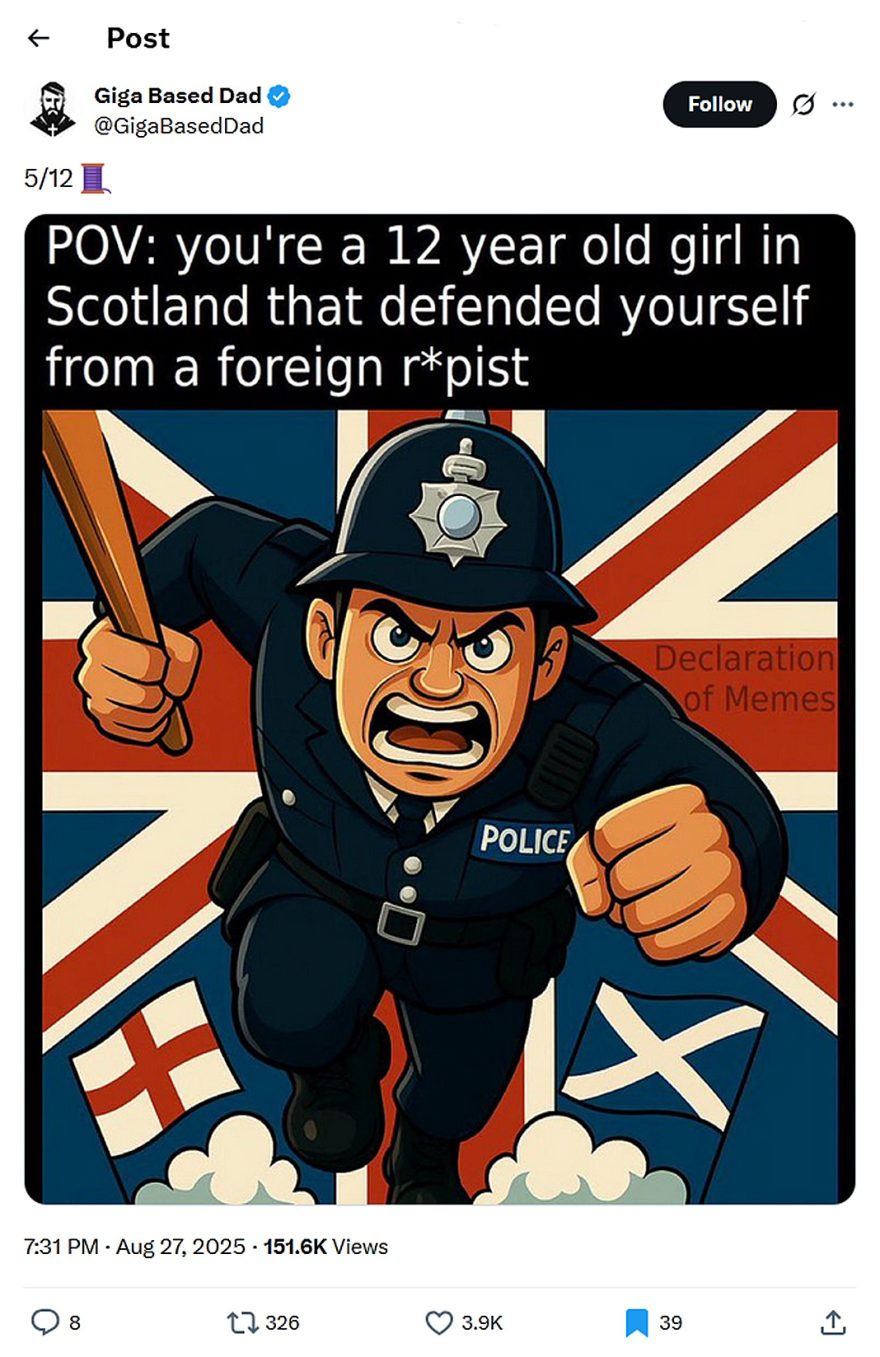



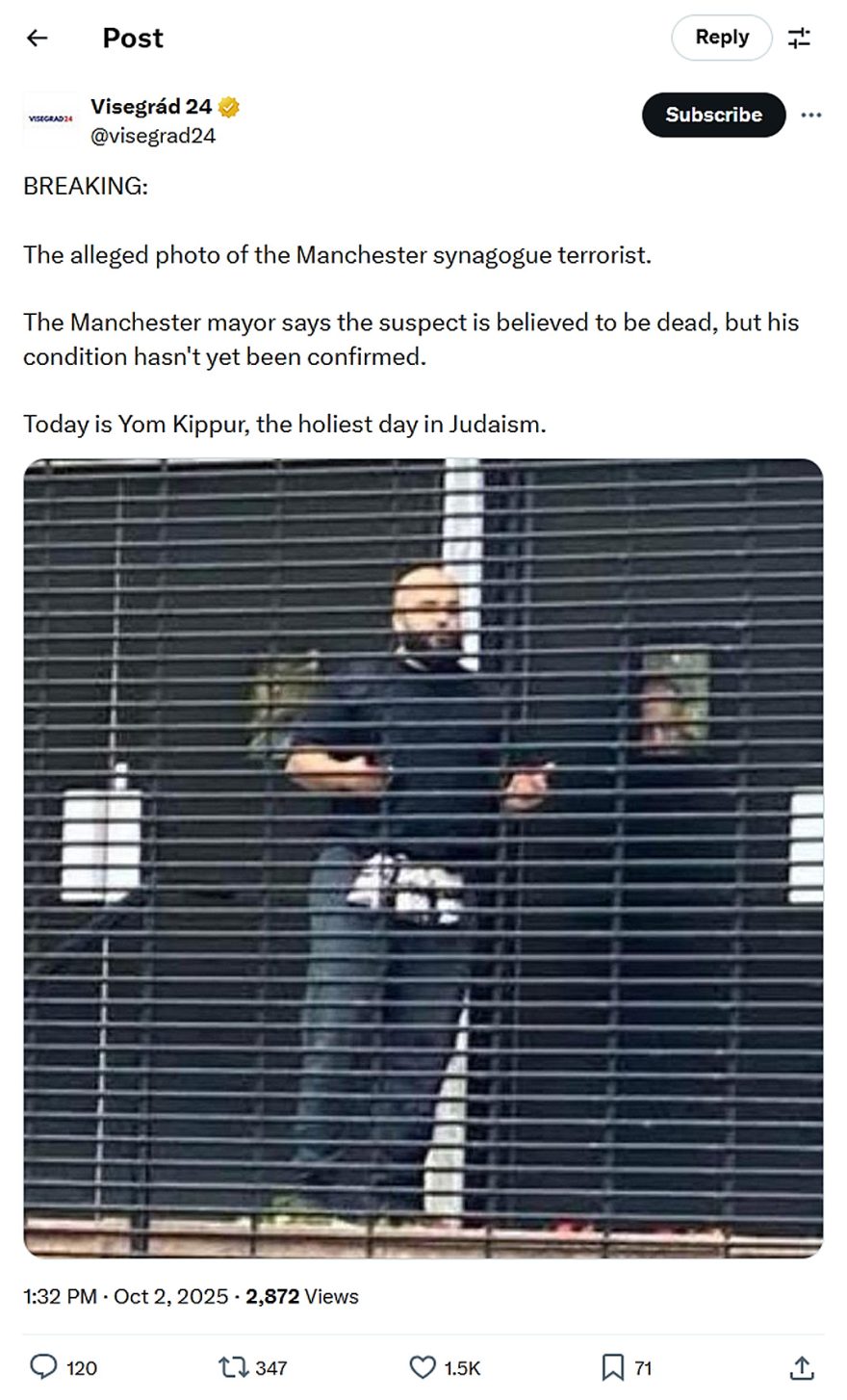





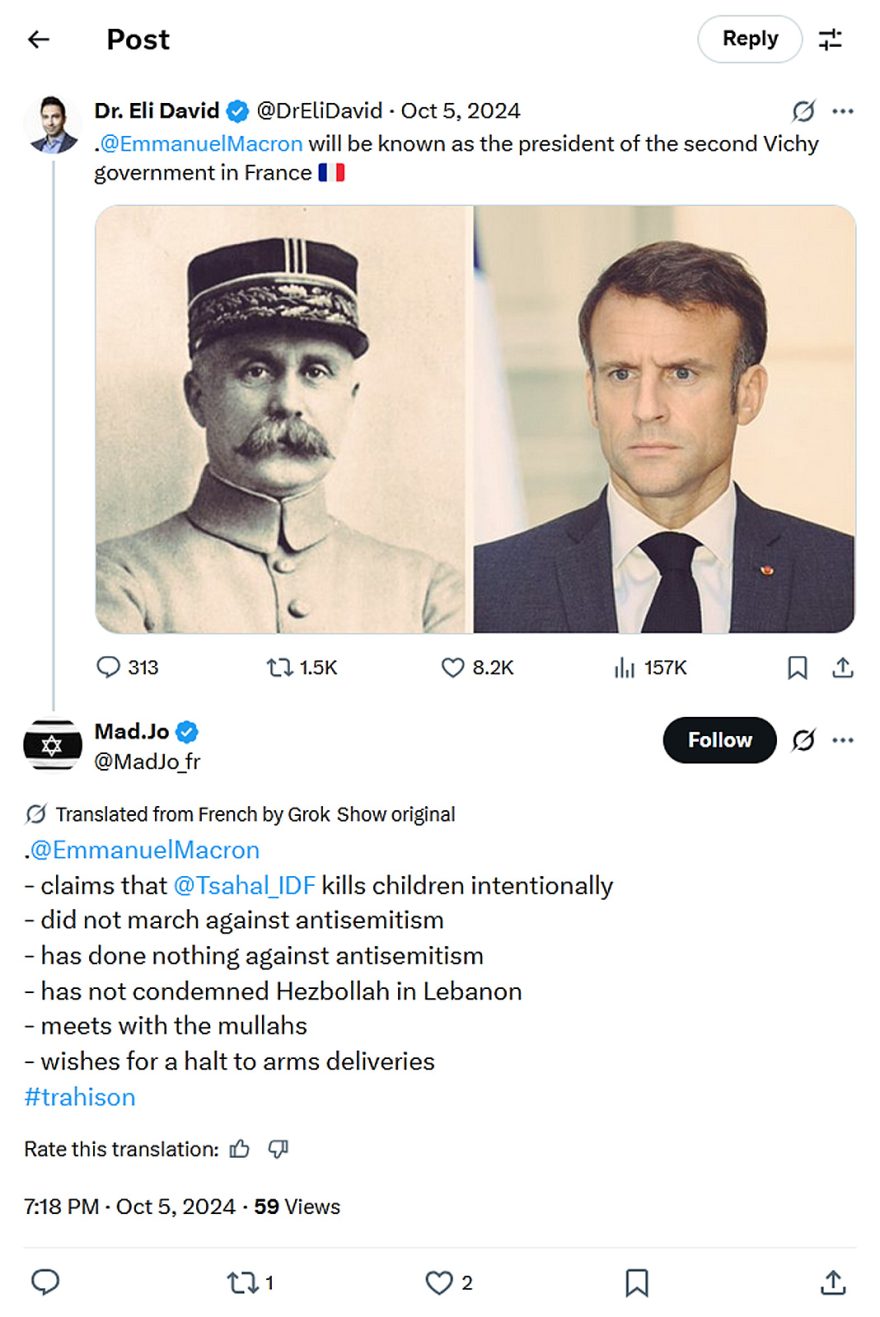

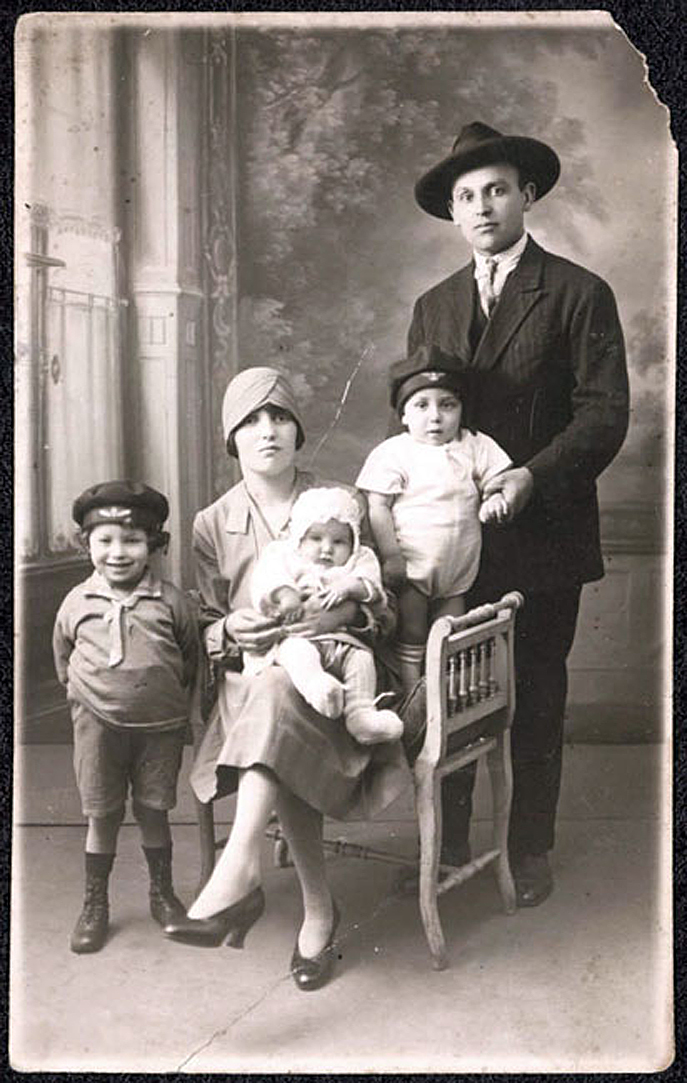
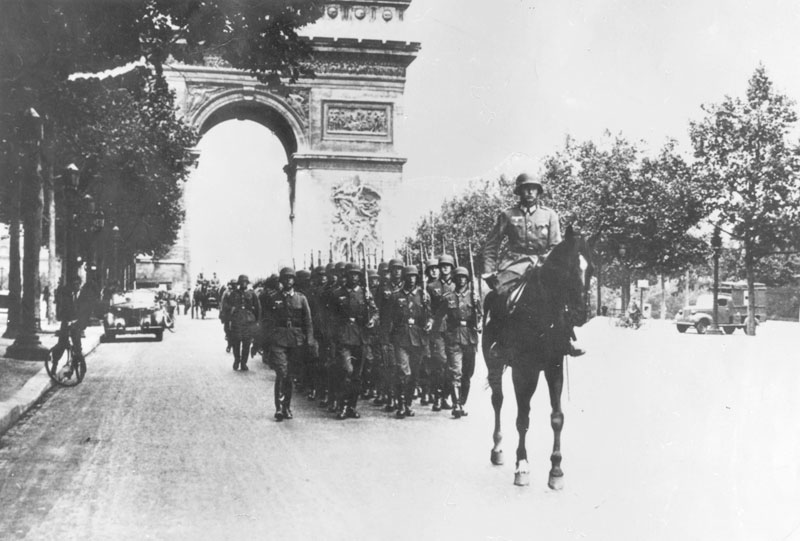
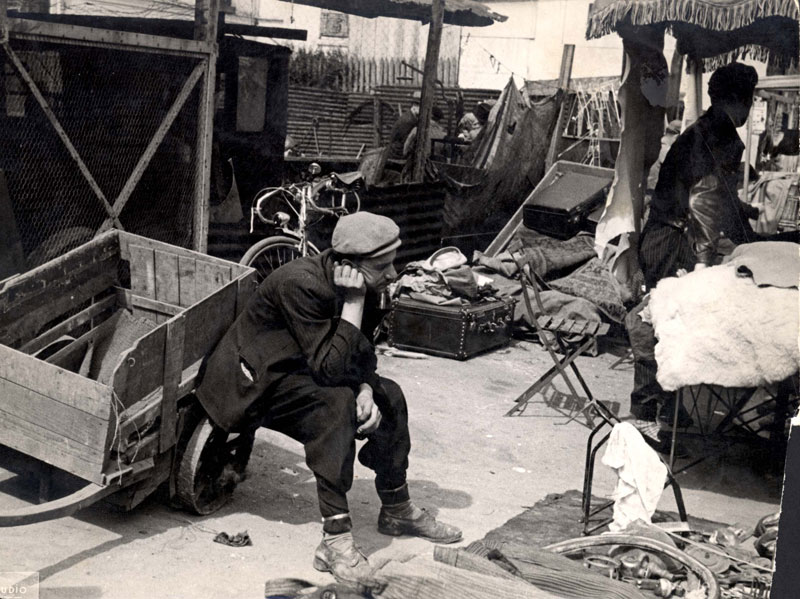
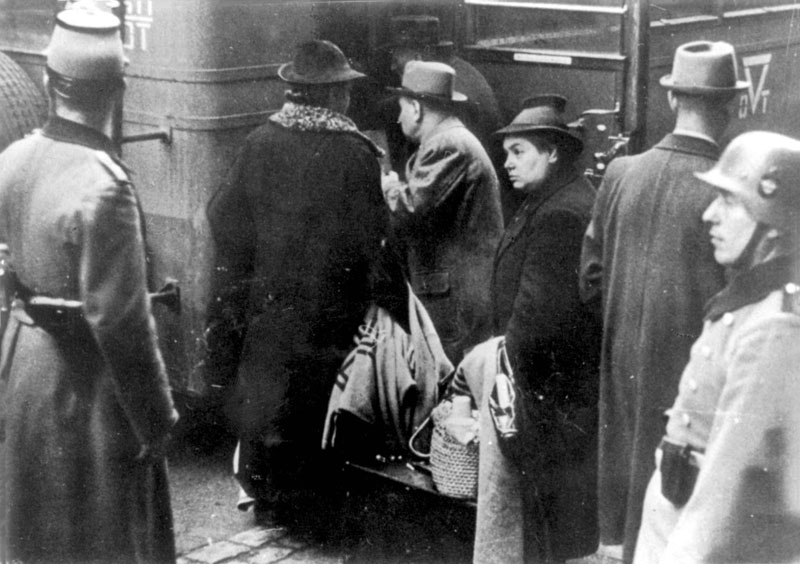

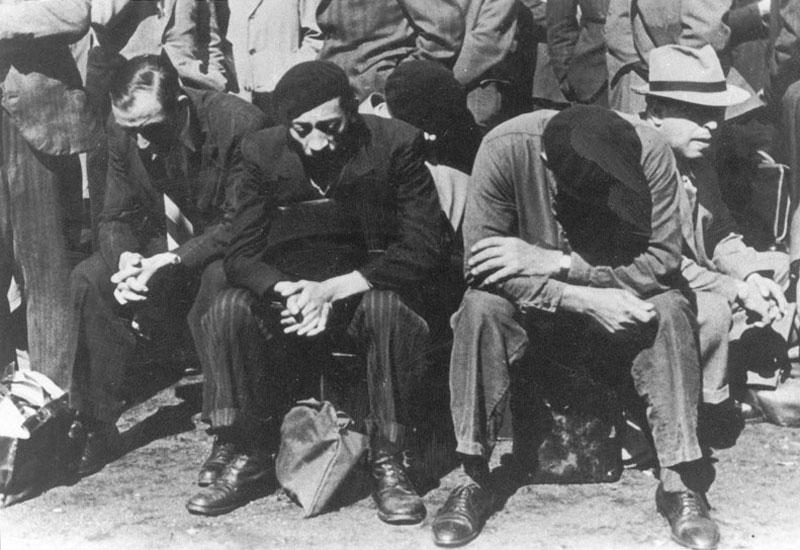


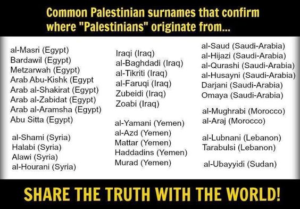


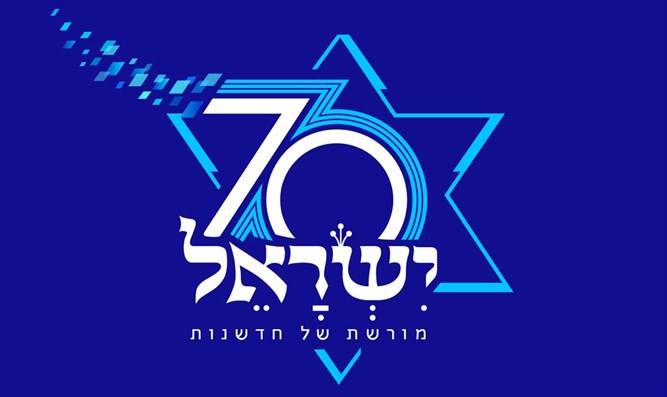













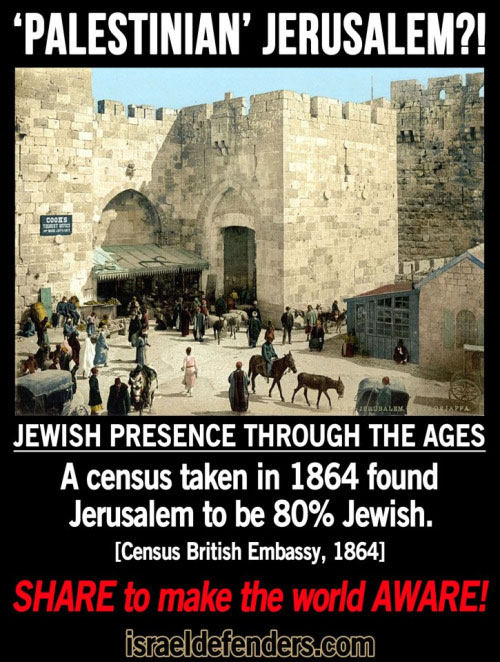

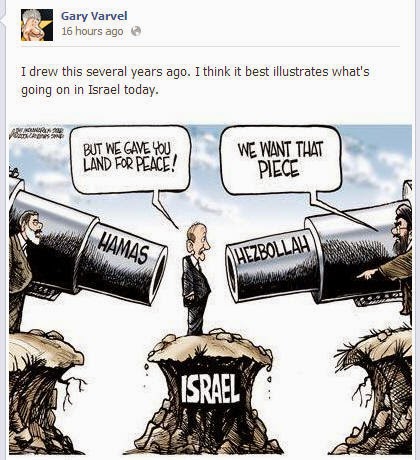

ISRAEL AT WAR 5786: Time and Again
Tel Aviv-We’re going to be fine
Eylon Levy-tweet-14October2025-Tel Aviv-We’re going to be fine
📌 Tel Aviv
We’re going to be fine
Eylon Levy-tweet-14October2025-Tel Aviv-We’re going to be fine
To get 20 Hostages back Israel surrenders
Israel left Gaza on Tisha B’Av 5765! What did the Jews of Israel get with the “Disengagement”? Gush Katif and Hurricane Katrina
7 Hostages Released
Israel Defense Forces-tweet-13October2025-7 Hostages Released
After 738 days in captivity in Gaza, Matan, Gali, Ziv, Alon, Eitan, Omri and Guy are coming home. 🇮🇱
Israel Defense Forces-tweet-13October2025-7 Hostages Released
13 Hostages Released
Israel Defense Forces-tweet-13October2025-13 Hostages Released
It’s official: There are no more living Israeli hostages in Hamas captivity.
Israel Defense Forces-tweet-13October2025-13 Hostages Released
22 wounded as Houthi drone from Yemen hits Eilat
Magen David Adom medics treated victims at the scene and evacuated them—including two in serious condition—to Yoseftal Hospital.
Charles Bybelezer
https://www.jns.org/five-injured-as-houthi-drone-from-yemen-strikes-eilat/
Israeli security forces at the scene of a Houthi drone strike in Eilat, Sept. 24, 2025. Photo by Yehuda Ben Itach/Flash90.
(24September2025 / JNS) Twenty-two people were injured on Wednesday evening when a drone launched by Houthi terrorists in Yemen struck the southern Israeli city of Eilat.
Magen David Adom said its medics treated victims at the scene and evacuated them—including two in serious condition—to the city’s Yoseftal Hospital.
Video circulating online showed people scrambling for cover as air-raid sirens sounded, with the UAV appearing to strike near a major shopping center adjacent to Eilat’s main boardwalk.
The Israel Defense Forces said interception attempts were made, and that search-and-rescue teams were operating at the impact site.
The Israeli Air Force opened an investigation after the two Iron Dome interceptor missiles failed to down the UAV.
Itay Blumental-tweet-24September2025-Houthi UAV in Eilat
Initial report on the fall of a Houthi UAV in Eilat, the second within a week
דיווח ראשוני על נפילת כטב”ם חותי באילת , שני בתוך שבוע
Itay Blumental-tweet-24September2025-Houthi UAV in Eilat
The Israel Police urged residents to stay away from the crash site and avoid touching debris, warning it may contain explosives.
The military urged the public to continue adhering to Home Front Command guidelines.
Defense Minister Israel Katz on Wednesday night wished a full recovery to those injured in Eilat.
“The Houthi terrorists refuse to learn from Iran, Lebanon and Gaza—and they will learn the hard way,” Katz said, adding, “Those who attack Israel will be struck back sevenfold.”
Israeli security forces at the scene of a Houthi drone strike in Eilat, Sept. 24, 2025. Credit: Israel Police.
Last Thursday, an unmanned aerial vehicle that was launched toward Israel “from the east” impacted in the courtyard of a hotel in Eilat. No injuries were reported.
A second drone was intercepted by the Israeli Air Force minutes later, the IDF said.
The term “from the east” is typically used by the IDF to refer to attacks by Iranian-backed Houthis in Yemen.
Approximately an hour later, the Houthis fired a ballistic missile that triggered air-raid alerts across central Israel, sending millions of civilians to bomb shelters.
On Sept. 16, the IDF struck Hudaydah Port in Houthi-controlled Yemen, accusing the terrorist group of using the facility to transfer Iranian-supplied weapons for attacks on Israel and its allies.
The strike targeted a “military infrastructure site,” with the IDF saying it was “in response to the repeated attacks by the Houthi terrorist regime against the State of Israel, including the launch of UAVs and surface-to-surface missiles.”
The Houthis have carried out missile and drone attacks on the Jewish state—including a direct missile hit near Ben-Gurion International Airport on May 4—since the Hamas-led massacre in southern Israel on Oct. 7, 2023.
A Houthi explosive drone crashed into Ramon Airport near Eilat on Sept. 7, shortly after the IAF intercepted three UAVs launched from Yemen.
Jerusalem has conducted several rounds of strikes against the Houthis, including an Aug. 28 operation that killed their “prime minister” and several other Cabinet officials.
Defense Minister Katz said on Friday that Abdul-Malik al-Houthi, leader of the Houthis, and his government would be sent to “the depths of hell.”
“Abdul-Malik al-Houthi, your time will come,” Katz said, adding that he and his subordinates will meet “all the envoys of the Axis of Evil.”
The slogan “Death to Israel, curse upon the Jews,” written on the Houthi flag, Katz added, “will be replaced by the blue-and-white Israeli flag that will fly in the capital of united Yemen.”
TOP
Israeli forces kill two PIJ terrorists in Samaria
Alaa Ga’udat Bani Ouda and Mohammad Qassem Suleiman were part of a cell planning an imminent attack.
JNS Staff
https://www.jns.org/israeli-forces-kill-two-pij-terrorists-in-samaria/
(25September2025 / JNS) Israeli forces operating overnight Wednesday in the Palestinian town of Tammun, eight miles northeast of Nablus in Samaria, neutralized a terrorist cell planning an imminent attack.
Acting on intelligence, the forces located members of the cell affiliated with Palestinian Islamic Jihad, including Alaa Ga’udat Bani Ouda and Mohammad Qassem Suleiman, both armed operatives involved in planning shooting and explosive attacks.
During the operation, forces encircled the building where the terrorists had barricaded themselves, engaged them with precise fire, and killed them.
During Israeli operations on Wednesday in the Anzah area, near Jenin in northern Samaria, a terrorist hurled an explosive device at soldiers. The troops returned fire, killing the assailant. No IDF injuries were reported.
A day earlier, Israeli forces identified a rocket in the Palestinian city of Tulkarem, in western Samaria. The Israel Defense Forces said the rocket was neutralized by Border Police sappers, while troops scanned the area. The military has opened an investigation into the incident.
TOP
BACKGROUND: What Israel has to deal with. Mein Kampf
Elder of Ziyon-tweet-4February2025-What Israel has to deal with-Mein Kampf
Elder of Ziyon-tweet-4February2025-What Israel has to deal with-Mein Kampf
TOP
Mein Kampf in Arabic
Mein Kampf in Arabic in Gaza
Israel-tweet-12November2023-Mein Kampf in Gaza
Antisemitism kills.
IDF forces found a copy of Hitler’s antisemitic work “Mein Kampf” in a child’s room of a home in Gaza used by Hamas as a terrorism hub.
The terrorist highlighted portions of the book and included his own notes.
It starts with words. It ends with Jewish blood in the streets.
Israel-tweet-12November2023-Mein Kampf in Gaza
Mein Kampf in Arabic in Judea and Samaria
Rubi Yona-tweet-15October2024-Mein Kampf in Arabic in Judea and Samaria
No, our fighters didn’t find it in Gaza but in “Judea and Samaria” (what the jihadist-loving left calls the “The West Bank”), 20 minutes from our central cities.
This is a school textbook based on Hitler’s “Mein Camp”, on the extermination of the Jewish people, with additions, upgrades and streamlining suggestions for the jihadist Muslims known as “Palestinians”.
We fight monsters.
#AINewsIL #MuslimInvaders #TheWestIsNext
Rubi Yona-tweet-15October2024-Mein Kampf in Arabic in Judea and Samaria
Mein Kampf sold at many Palestinian stores
SEE: From 9January2014 Sales Of Hitler’s Mein Kampf Are Surging
Eli Kowaz-tweet-4January2024-Mein Kampf sold at many Palestinian stores
While visiting different Palestinian cities in the West Bank, I was shocked to see Mein Kampf sold at many stores (even those that are not bookshops).
When you hear how many Palestinians talk about Hitler, you quickly understand why.
Listen to Yussuf from Bethlehem.
Eli Kowaz-tweet-4January2024-Mein Kampf sold at many Palestinian stores
TOP
Who’s afraid of diplomatic isolation?
There is no Palestinian state not only because Israel maintains full control over the territory, but also because of the Palestinian Authority’s failure to establish functioning governing institutions, and Hamas’ dominance.
by Prof. Eyal Zisser – Published on 09-28-2025 10:05 – Last modified: 09-28September2025 10:15 https://www.israelhayom.com/opinions/whos-afraid-of-diplomatic-isolation/
Eyal Zisser is a lecturer in the Middle East History Department at Tel Aviv University.
On December 13, 1949, Prime Minister David Ben-Gurion declared Jerusalem the capital of Israel and ordered the transfer of state institutions there from Tel Aviv. In the UN Partition Plan of November 1947, Jerusalem was not included in the Jewish state’s territory. During and after the 1948 War of Independence, proposals were even raised internationally to place the city under international rule, or to hand it over to Jordan. Israel effectively set its capital in Tel Aviv, where the president, government, Knesset and other state institutions sat.
Ben-Gurion’s announcement came, naturally, as the UN General Assembly was meeting in New York to debate the Middle East. At the time, Israel was waging a tough diplomatic battle to preserve the gains of the War of Independence, against most of the world, which demanded territorial concessions and the return of Palestinian refugees as the only path to peace.
But Ben-Gurion did not back down and decided to move the capital to Jerusalem. As expected, the world erupted in protest, condemned Israel harshly, and threatened retaliatory steps. Leading the opposition, as usual, were European countries, joined by the United States, whose ties with Israel in those years were cool and even hostile. But the die was cast, and Jerusalem became the capital. Inside Israel, too, many opposed the move. Foreign Minister Moshe Sharett even submitted his resignation to Ben-Gurion, perhaps as protest, having warned that the step would bring disaster, or perhaps, as he later claimed, because he had not foreseen the diplomatic tsunami that swept over Israel.
Today we are once again warned that Israel is on the verge of diplomatic isolation, highlighted by the recognition of a Palestinian state by Britain, France and other Western countries. But such warnings should be taken with a grain of salt. First, most of the world, 147 of the UN’s 193 member states, has already recognized a Palestinian state for years, yet it has not come into being nor is it likely to in the near future. Second, a Palestinian state has not emerged not only because Israel controls the territory, but also because of the Palestinian Authority’s ongoing failure to maintain functioning institutions and, above all, because of the looming threat of Hamas, which could seize control of any area handed over to the Palestinians.
In 1955, as Israel battled waves of terrorist attacks while being urged to exercise restraint out of fear of international criticism, Ben-Gurion declared: Only the courage of the Jews established the state, not some ‘UN-shmun’ decision… Our future depends not on what the nations say, but on what the Jews do. Still, Ben-Gurion was mindful of limits and the need for alliances. He launched the 1956 Sinai Campaign only after securing French backing, which for a time provided Israel with political cover and military aid.
The historical lesson is clear. A country like Israel, facing existential security challenges in a complex and hostile regional and global arena, cannot base its actions solely on how the world will respond.
The decision by some European states and others to recognize a Palestinian state stems from political calculations, appeasing the radical left and Muslim immigrant communities. It carries no real weight or meaning and will ultimately fade into history. Yet Israel must know what it seeks and can achieve, what is worth fighting for, and where to show flexibility. With all due respect to Gaza, it is not Jerusalem. As Menachem Begin once put it: Learn from Masada how not to reach it, and from Modiin how to build it.
The real question we must keep in sight is how to preserve cohesion and unity within Israeli society, and around what shared principles and goals to forge broad national consensus.
TOP
Politicians Are Speaking Out! A Massive Awakening is Happening in Israel…
Posted 28September2025 JNS-TV:
Most people outside of Israel probably don’t realize what’s happening right now. In the middle of a war, with the country on edge, one unexpected name has suddenly been thrust into the spotlight: David Zini. He’s not a politician or a public figure, but a career IDF general who has just been appointed to head Israel’s most powerful security agency, the Shin Bet. In this episode, we break down who he is, why this move surprised so many, and how his sudden rise is already sparking political battles inside Israel.
TOP
To get 20 Hostages back Israel surrenders
The Sovereignty Movement responds to the signing of the agreement
https://www.israpundit.org/the-sovereignty-movement-responds-to-the-signing-of-the-agreement/
By Yehudit Katsover and Nadia Matar
The Sovereignty Movement responds to the signing of the agreement Alongside the joy — together with all the P????? of Israel — at the return of all the hostages, we must clarify that although the full details of the agreement are not yet known, if the agreement indeed includes those same 21 points that were published previously, then this is a defeat and a humiliation for the honor of Israel. The only response that would have been appropriate toward Gaza after the October 7 massacre was its erasure from the face of the earth, just as the Almighty taught us by overturning Sodom and Gomorrah. That is true justice; that is the necessary rectification.
If the agreement is indeed subject to those 21 points and limitations, then its implementation will increase and strengthen the evil in the world and the confusion between good and evil.
Gaza is an inseparable part of the Land of Israel, and by our withdrawing from it again, for the second time, we inflict a blow to our national honor, and conversely we return to the Arab enemy the hope — G-d forbid — of taking the whole Land of Israel into his hands.
In order to restore our national honor, to cut off the enemy’s hopes, to deliver a decisive crushing blow to our enemies and to return to true justice and morality, we must choose the path of sovereignty and apply it over all of Judea, Samaria and the Gaza Strip.
Here we must add and emphasize that there is no difference between the Arabs of Gaza and the Arabs of Judea and Samaria. The same ideology, vision and hopes drive both groups, and now they are receiving validation for the success of their way and encouragement to continue that cruel and murderous path in the future in order to reach the goal they declare again and again: the destruction of the State of Israel.
The people of Israel were given a role and a destiny that fill it with meaning — to distinguish between light and darkness, between life and death, between meaning and morality and distortion and trampling of justice — yet we repeatedly betray our mission and adopt distorted, illogical moral rules.
In two years of war the people of Israel have taken significant steps toward clarifying their identity and their connection to it, but the completion of the task remains.
We are confident that the destiny of the people of Israel will be fulfilled in the future, for that is why we were created as a people.
Our hope is that the next opportunity to return to our selfhood and our identity will not include much more painful and heavy prices.
Yehudit Katsover and Nadia Matar
The Sovereignty Movement
https://linktr.ee/sovereignty.il
TOP
Hoshana Rabbah-the captives return
Lyon Of Judah-tweet-13October2025-Hoshana Rabbah-the captives return
Absolutely
Lyon Of Judah-tweet-13October2025-Hoshana Rabbah-the captives return
Hoshana Rabbah-the captives return
7 Hostages Released
Israel Defense Forces-tweet-13October2025-7 Hostages Released
After 738 days in captivity in Gaza, Matan, Gali, Ziv, Alon, Eitan, Omri and Guy are coming home. 🇮🇱
Israel Defense Forces-tweet-13October2025-7 Hostages Released
13 Hostages Released
Israel Defense Forces-tweet-13October2025-13 Hostages Released
It’s official: There are no more living Israeli hostages in Hamas captivity.
Israel Defense Forces-tweet-13October2025-13 Hostages Released
TOP
Trump’s Gaza Deal: A Win for Islamic Jihad
Posted 10October2025 Avi Abelow:
Trump’s Gaza Deal may look like a diplomatic victory on paper for Israel with the hopeful return of all the remaining hostages, but in reality, it hands the Sunni and Shia jihadis exactly what they want – legitimacy, survival, and time. Qatar, Turkey, and Egypt agreed to sacrifice Hamas to regroup and attack Israel in the future in some other constellation.
Instead of a deal that deals a crushing blow to the Qatari-led jihad that financed the Oct. 7th massacre, it rewards it, signaling to every Islamist movement that terror and kidnapping Israelis pays.
It is about time that the Western world understands the Islamic jihad enemy we are up against and what motivates them, not their lives or their homes or cities.
With it all, this is the best agreement Netanyahu was able to achieve under the circumstances.
TOP
Muslims Murdering Jews since 628 CE
Elder of Ziyon-tweet-6December2024-Muslims are right-It started in 628 CE
Muslims are right. It didn’t start October 7 2023.
It started in 628 CE.
What do you think they mean when they chant “Khaybar Khaybar Ya Yahud?”
Mitzi-tweet-6December2024-Khaybar Khaybar ya yahud
“Khaybar Khaybar ya yahud” is the first verse of an antisemitic chant used to massacre the Jewish population in the Khaybar Oasis of modern-day Saudi Arabia in 628 CE. The full verse is: “Khaybar Khaybar ya yahud, jaish Muhammad soufa ya’oud.” It translates to “Khaybar Khaybar oh Jews, the army of Muhammad will return.”
Elder of Ziyon-tweet-6December2024-Muslims Murdering Jews since 628 CE
“Khaybar Khaybar ya yahud” is the first verse of an antisemitic chant used to massacre the Jewish population in the Khaybar Oasis of modern-day Saudi Arabia in 628 CE. The full verse is: “Khaybar Khaybar ya yahud, jaish Muhammad soufa ya’oud.” It translates to “Khaybar Khaybar oh Jews, the army of Muhammad will return.”
TOP
SOVEREIGNTY-logo https://www.ribonut.co.il/
October 7, Only full sovereignty will prevent the next massacre
“The Next October 7 — Even More Horrific — Is Closer Than We Think”
Kobi Gideon, GPO
https://www.ribonut.co.il/BlogPostID.aspx?BlogPostId=984&lang=2
of Israel Once someone who believed that if only Arabs had a better future and economy they wouldn’t want to kill us, Aviyad Bachar, a resident of Be’eri, has become convinced that only full sovereignty over the entire Land, cleansed of the enemy, will prevent the next massacre — which, he warns, could be far worse.
2October2025
The interview first appeared in Issue 19 of Ribonut (Sovereignty).
The name Aviyad Bachar, a resident of Kibbutz Be’eri who lost his wife Dana and son Carmel in the October 7th massacre, has become a symbol of the painful and rapid awakening that many in Israel have experienced. Since witnessing the murder of his wife and son before his and his daughter’s eyes, he has taken it upon himself to share his story and the insights it burned into him — insights that, in truth, have been seared into the heart of an entire nation.
On a visit to Samaria hosted by Yossi Dagan, head of the regional council, Bechar declared: “There must be full sovereignty here. If that doesn’t happen, another October 7 is just a matter of time. Sovereignty is what will give us maximum security.”
In an interview with Sovereignty, he expands on his message, sharpens it — and makes it even more severe.
“I Don’t Believe Anyone — Another October 7 Is Coming”
Bachar flatly rejects the common reassurances that a massacre like October 7 won’t happen again, because the security establishment is now better prepared and experienced: “I don’t believe anyone. There’s no such thing as ‘it won’t happen again.’ The next October 7 is coming, and we don’t know how soon — but it’s coming, and it’ll be much worse. It will come simultaneously from Metula, from Jenin toward Afula, and toward Kfar Saba. There will be between 100,000 and 200,000 dead.”
This apocalyptic scenario comes not from fearmongering, but from a cold, rational analysis based on what he and his family experienced.
“I realize we were actually lucky on October 7… If they had been a bit more coordinated, and attacked from four or five fronts at once, we wouldn’t have had 1,200 dead — we’d have had 200,000, and we wouldn’t have regained control in 36 hours — it would’ve taken two weeks. I understand that the day will come again when we’re not prepared. I don’t know exactly when it will happen, but I do know it will happen. That’s why, if we want to prevent it, the enemy in Judea and Samaria and Gaza must disappear. As long as they’re there, they’re motivated to kill me.”
“I No Longer Believe They’ll Protect Me”
To those who try to reassure the public by claiming that Hamas has “learned a lesson” after the IDF’s blow to Gaza, Bechar reminds them that even the so-called experts — military, political, and civilian — admit that it could happen again. “They say, ‘we’ll do everything to make sure it doesn’t,’ but I no longer believe they’ll protect me.”
“What’s holding them back is a mindset — they tell themselves, ‘we can’t act.’ They understand the solution and agree with me, but then they add three words: ‘I can’t do it.’ And that paralyzes them. I, on the other hand, say I can do anything. Whatever we choose, we can carry out. The choice won’t always be easy — but I can do it. So removing them is an option I can implement — and it’s necessary if we want a future for the Jewish people for generations to come.”
“The Only Border Is the Jordan River”
“When natural disasters kill people, we bow to nature and say it’s stronger than us — a decree of fate. But when people destroy you, that’s not fate — it’s a choice. You’re choosing to let them slaughter you,” says Bachar, who believes fears of global reactions are exaggerated and baseless. “We give too much importance to other nations. They don’t care what happens in Israel. They won’t care if the enemy kills 10 million Israelis. So if we do what needs to be done, no one will really care.”
“Our only option for survival in Israel — for generations — is if they’re no longer here. What should we do with them? I would send them to sovereign states like Egypt, Syria, and Jordan. And when we present the world with the other option — that they die — we’ll see how quickly the world prepares to receive them.”
He adds: “When I used to tell Carmel, my son, not to play on his phone, he could tell by my tone whether I was serious or not. We need to speak with the world firmly and seriously. Tell them: ‘If by tomorrow the hostages aren’t in Israel, we’re annexing the territory and destroying everything there.’ And then we’ll see that the hostages come back faster than we think. But instead, we keep saying, ‘We can’t do that. Who knows what the world will do to us?’These are fictional stories we invent in our own heads — and we believe them.”
“Take Down the Fence — This Is the Whole Land of Israel”
As for the future of Judea and Samaria, Bechar’s stance is firm and clear: “Tear down the fence. The fence is the Jordan River. There are no more fences. This is the whole Land of Israel, and there are no longer any non-citizens here.”
When asked to reflect on his views from two and a half years ago, before the personal and national tragedy, he replies: “Back then, I thought that if I just loved and embraced the Palestinians, if I gave them money and a future — they wouldn’t want to kill me. But I’ve come to understand that they want to kill me because I’m sitting on land they think is theirs. That’s what the war is about — and once we take the land, it will be resolved.”
“This Realization Came Later — Through Rational Thought”
Bachar explains that this transformation of consciousness didn’t happen in the bomb shelter surrounded by dozens of terrorists trying to kill him and his family — it happened later, when he rationally processed the events and data. “Some people go through trauma and crash. Others rise. Those who can take their feelings and translate them into simple words — to make sense of what happened — can move forward in life. But those who remain stuck in emotion will collapse.”
“So I began analyzing everything: What is bereavement? Suddenly you’re a widower. Your son is listed as ‘of blessed memory’ in your ID card. You begin to understand why you were killed, what the solution is, and what love means after losing your wife.” “I also ask: What is victory? And what is total victory?” “To e, total victory is when Israel is a sovereign state, bordered by four other sovereign countries who are responsible for their own citizens. Any entity that is not sovereign — has no responsibilities. It’s a terror organization with only one goal: to kill you because of the land. That’s my understanding.”
“There’s No Such Thing as ‘I Can’t’”
Bechar says that this shift — both ideological and political — has been shared by many of his acquaintances. “But they say, ‘I can’t.’ Everyone’s stuck on those words. They tell me: ‘Aviyad, if there were a button to press to implement your solution, we’d do it — but we can’t.’That’s the problem. They give too much weight to the world, to liberalism, to human rights.” “My true life mission is to say: There’s no such thing as ‘I can’t.’
Anything we choose — we can do. And ultimately, I understand that if I want to survive, I have no choice. With any other option, I’m not sure Israel will even reach 100 years old — and I want to talk about generations upon generations of a future for the Jewish people.”
TOP
https://www.fdd.org/
Hamas Attacks Israeli Positions Amid Ceasefire Announcement, IDF Concerned About Kidnapping Attempts
9October2025 https://www.fdd.org/analysis/2025/10/09/hamas-attacks-israeli-positions-amid-ceasefire-announcement-idf-concerned-about-kidnapping-attempts/
Latest Developments
FDD Expert Response
“It should surprise no one that Hamas may be attempting a last-ditch effort to earn a battlefield victory by either exacting additional IDF casualties or abducting a soldier. Israel learned a valuable lesson following Hamas’s abduction of IDF soldier Hadar Goldin during a ceasefire period in the 2014 war. Furthermore, renewed rocket fire toward Israeli communities remains a distinct possibility, as Hamas and its allies might seek to prove that — despite the damage inflicted by the IDF — they continue to have operational capacity to strike the Jewish state.” — Joe Truzman, Senior Research Analyst and Editor at FDD’s Long War Journal
“This is not the first time Hamas has tried to abduct Israeli soldiers during ceasefire negotiations. They attempted the same tactic in July to shape the narrative in their favor and have the last word. This serves as a testament that, despite the positive news that the hostages will return home, allowing Hamas to operate as it did before October 7, 2023, would mean that it will remain a threat to Israel in the future. That is why Hamas must be disarmed and prevented from ruling the Gaza Strip.” — Ahmad Sharawi, Research Analyst
FDD Background and Analysis
“Israel and Hamas Agree to First Phase of Trump’s Peace Plan for Gaza,” FDD Flash Brief
“Hamasniks in fox holes,” by Clifford D. May
“How Israel Can Defend Itself in the Future,” by Jonathan Schanzer
“Releasing All Hostages at Once Essential to Success of U.S. Peace Plan,” by Aaron Goren
TOP
BARRY’s Newsletter
The New Trump-Blair Gaza is Frightening.
Read this, and then the GITA Summary.
BARRY SHAW
11October2025 https://barryshaw.substack.com/p/the-new-trump-blair-gaza-is-frightening
I have read the Confidential Summary of the proposed Gaza Transitional Authority (GITA) Institutional Structure.
This is the body to be led by Tony Blair and is a gift to a Palestinian leadership that has proven its Ramallah-based authoritarian corrupt violent anti-Israel record since 2007, unless, of coure, Hamas does a Hezbollah by gradually exerting its administrative power in Gaza.
Nowhere in this report does it ban Hamas or Palestinian Islamic Jihad from participating in this new Trump-Blair Gaza.
To say the 21 page summary is an eye opener to the dangerous shallowness of the intent of this future governance of Gaza is to put it mildly.
It designates that “all mayors and senior municipal administrators are nominated by the Palestinian Executive Authority.” What could possibly go wrong with that? Well, which unelected people will sit on this nominating PEA?
Obviously, there is no democratic elections by the people to decide who rules over them.
Then we come to a strange section on Page 14 that talks about “gender inclusion” in its public health promotion, but a serious and dangerous omission in that there is zero mention of the necessity to cancel indoctrination in the GITA’s educational system. In other words, unless this section is amended, the new Palestinian flagship of a future Gaza can continue to indoctrinate its children and its youth in its education system to a world without Israel and the holy order to kill all Jews where ever you find them.
This then is the proposed Palestinian Gaza entity that Tony Blair will govern with his central Middle East partners – Qatar and Turkey.
What possibly could go wrong?
For Israel, an awful lot.
Barry Shaw,
Israel Institute for Strategic Studies.
TOP
New York, New Jersey Declare State of Emergency as Region Braces for Nor’easter
High winds and flooding are expected for the region.
https://www.theepochtimes.com/us/new-jersey-declares-state-of-emergency-as-region-braces-for-noreaster-5928316
Sam Dorman
Washington Correspondent & Joseph Lord
12October2025 | Updated: 12October2025
New York and New Jersey have both declared a state of emergency as the region braces for a nor’easter bringing high winds and heavy flooding.
Earlier, New Jersey declared a state of emergency to be in effect until Oct. 13.
After initially urging residents to “stay alert,” New York Gov. Kathy Hochul followed suit on Oct. 12.
The declaration, which affects Bronx, Kings, Nassau, New York, Queens, Richmond, Suffolk, and Westchester Counties in New York, includes a coastal flooding advisory until 8 p.m. on Monday, and a high wind warning lasting until 6 p.m. on Monday.
Wind gusts exceeded 30 mph on Oct. 12 and were expected to pick up further as the storm hits the East Coast. The National Weather Service (NWS) has also issued a coastal flood warning and wind advisory, with winds potentially reaching 50 mph. Water is projected to reach two to three feet of inundation above ground level in areas near shorelines and waterways.
“At this level, flooding may become severe enough to cause structural damage along with widespread roadway flooding in coastal and bayside communities, and near inland tidal waterways,” the NWS stated in an Oct. 12 advisory.
“At this level, widespread roadway flooding occurs in coastal and bayside communities and along inland tidal waterways. Many roads become impassable.”
In a statement, Hochul’s office said it expected between 1 1/2 inches and three inches of rainfall downstate, with beach erosion likely.
New York City Emergency Management stated in an X post that New York City was under a flood warning and wind advisory through the afternoon of Oct. 13.
“Stay safe: secure outdoor items, avoid flooded areas, and check on neighbors,” it posted on Oct. 12.
In a statement, the New Jersey governor’s office said the state could face sustained winds of up to 60 mph and localized precipitation of up to five inches.
“In preparation for this storm, I am issuing a State of Emergency for all 21 counties out of an abundance of caution, authorizing our state’s emergency services personnel to activate as necessary,” said New Jersey Lt. Gov. Tahesha Way, serving in the capacity of acting governor in Gov. Phil Murphy’s absence.
“I urge all New Jerseyans to exercise caution, monitor local weather forecasts and warnings, stay informed on evacuation protocols, and remain off the roads unless absolutely necessary.”
In her executive order, Way said that “serious weather conditions could make it difficult or impossible for residents to obtain the necessities of life, as well as essential services such as police, fire, and first aid.”
The order authorizes multiple offices within the state government to respond to the storm. It also permits the state director of emergency management to use facilities as shelter for residents.
The storm is working its way up the coast after hitting the mid-Atlantic region with flooding. NWS meteorologist Bob Oravec said, “The greatest effects are going to be the coastal flooding potential, especially for areas from northeastern North Carolina northward to much of the New Jersey coast.”
Flight delays have been issued in airports from Washington to Boston. High winds have prompted New York City’s Metropolitan Transportation Authority to prohibit empty tractor-trailers and tandem trucks from using certain bridges on Oct. 12 and Oct. 13.
The Associated Press and T.J. Muscaro contributed to this report.
TOP
Nearly 50,000 Jews celebrate Sukkot in Hebron
Fifty percent more worshippers than last year visited Judaism’s second-holiest site during the first days of the Feast of Booths.
JNS Staff
https://www.jns.org/nearly-50000-jews-celebrate-sukkot-in-hebron/
Israel flags decorate the 2,000-year-old Cave of the Patriarchs complex in Hebron in anticipation of Independence Day, May 2018. The same Herodian masonry is used for the Western Wall in Jerusalem. Photo by Yishai Fleisher
( 12October2025 / JNS) Almost 50,000 Jews visited the Cave of the Patriarchs in the Judea city of Hebron Octoberduring the first two days of the joyous Sukkot festival on Oct. 7-8, according to Israel Defense Forces data.
A total of 47,000 Jews visited Judaism’s second-holiest city during the first two days of the weeklong Feast of Booths—1.5 times as many worshippers as last year, the data cited by Arutz 7 on Sunday indicated.
The Cave of the Patriarchs (“Mearat Hamachpela“) is the burial place of the Jewish patriarchs Abraham, Isaac and Jacob and matriarchs Sarah, Rebecca and Leah. According to the biblical account, the cave was purchased by Abraham from Ephron the Hittite more than 3,000 years ago.
Hebron is home to some 800 Jewish residents—there is a waiting list to move there—who live surrounded by some 200,000 Arabs.
At dawn on Wednesday, thousands of Jewish worshippers gathered at the Cave of the Patriarchs for a traditional Hallel prayer led by Rabbi Shmuel Eliyahu, the chief rabbi of Safed in the Upper Galilee, and Rabbi Avraham Yitzchak Schwartz, the chief rabbi of Hebron-Kiryat Arba.
Among those attending the service were bereaved Israeli families, IDF troops and their relatives, and National Security Minister Itamar Ben-Gvir, Heritage Minister Amichai Eliyahu and other senior officials.
Eliyahu told attendees at the prayer service, “The Zohar [book of Jewish mysticism] teaches that in the future, the enemies of Israel throughout generations will reappear in the enemies of today. At the same time, the patriarchs themselves are revealed through the righteous of our time.”
He added that this includes “all the righteous and soldiers who risk their lives not just to save one soul, but to save an entire people—and through them, an entire world.”
Also on Wednesday, Ben-Gvir visited the Temple Mount in Jerusalem’s Old City, declaring victory at the holiest site in Judaism two years after the Hamas-led Palestinian terrorist invasion of the northwestern Negev.
“We are two years after the terrible massacre—here at the Temple Mount there is victory, in every house in Gaza there is a picture of the Temple Mount, and we today, two years later, are victorious at the Temple Mount,” the leader of the Oztma Yehudit Party exclaimed.
Almost 70,000 Jews ascended the Mount in the Hebrew year 5785, a 22% increase compared to the previous year and a modern-day record, the Beyadenu—Returning to the Temple Mount group stated on Sept. 24.
According to the Israeli advocacy group, 68,429 Jewish worshippers entered Judaism’s holiest site since the previous Rosh Hashanah, or Jewish New Year, on Oct. 2, 2024. In 5784, 56,057 visited the site.
TOP
Israel will build ‘Independent Arms Industry’ amid worry of international constraints: Netanyahu
Posted 25September2025 The Economic Times:
Israeli Prime Minister Benjamin Netanyahu said on Tuesday (September 16) that Israel will create an “independent arms industry” that can “withstand international constraints”. In his address, Netanyahu spoke about the Israeli economy and that it withheld through two economic crisis, the COVID and the two year war on Gaza. He also added that President of the United States, Donald Trump had invited him to the White House in two weeks, after his speech at the U.N.
TOP
Amid embargoes, how independent can Israel’s defense industry be?
Analysts agree with Prime Minister Benjamin Netanyahu that Israel could become more self-sufficient, but there are clear limits to the push.
By Seth J. Frantzman on September 30, 2025 12:43 pm https://breakingdefense.com/2025/09/amid-embargoes-how-independent-can-israels-defense-industry-be/
JERUSALEM — Facing foreign arms embargoes, Israeli Prime Minister Benjamin Netanyahu recently called for Israel to become far more self-reliant on homegrown defense products, describing his vision of the Middle Eastern power as a “super Sparta.”
But analysts told Breaking Defense that while it would be in Jerusalem’s interest to build more defense components and platforms at home, there are clear limits to what the defense industry is capable of on its own.
“Israel will not be totally independent,” Yaakov Amidror, who served as Netanyahu’s national security advisor between 2011 and 2013, told Breaking Defense. “It will not produce F-35s or submarines, for example, but Israel can be and should be less dependent on others regarding munitions and spare parts.”
In a speech on Sept. 15 Netanyahu acknowledged that economically Israel is “in a sort of isolation.”
“I am a believer in the free market, but we may find ourselves in a situation where our arms industries are blocked. We will need to develop arms industries here — not only research and development, but also the ability to produce what we need,” he said. After the comments sparked a vocal backlash, Netanyahu clarified that the defense industry was already “soaring,” but reiterated Israel needed to “achieve security independence.” (Days later, scores of delegates walked out ahead of Netanyahu’s speech at the United Nations General Assembly.)
Eran Lerman, a former deputy for foreign policy and international affairs at the national security council in the Israeli prime minister’s office, noted “there is a reason Netanyahu quickly walked back his earlier comment about becoming generally self-reliant — it simply cannot work in an economy fully geared towards export.” Lerman, who is vice president of the Jerusalem Institute for Strategy and Security, added that in more narrow terms relating to military supplies, “it does make sense to generate alternatives to the occasionally problematic chains of supply. But to wrap this in the red battle cloak of Sparta was an obvious mistake.”
Yaakov Katz, author of Shadow Strike, a book about Israel’s raid on Syria’s nuclear program and a fellow at the Jewish People Policy Institute, said that Netanyahu was right regarding Israel’s need to be more self-reliant in terms of weapons production. However, he agreed with Amidror that when it comes to major platforms like warplanes, it won’t be possible.
“Take the Air Force as an example: All of the IAF’s aircraft except the trainer aircraft are US made. [These] are F-15s, F-16s, F-35s and so much more. Without spare parts, maintenance and more from the US, Israel will not be able to fly and hence, will not be able to fight. So while independence is important, so is ensuring we have bipartisan support in the US for decades to come.”
While some European nations have announced embargoes on arms sales to Israel over its conduct in Gaza, Washington has maintained its close relationship with Jerusalem, even if President Donald Trump appears at times to have been frustrated with Netanyahu. The Israeli prime minister concluded a visit to the White House on Monday, after which Trump presented a 20-point plan to end the conflict in Gaza.
Meanwhile, Israeli defense firms have been logging record export sales, despite the ongoing war against Hamas. Israel has also been plowing funds into local defense contracts, which Israel’s Ministry of Defense says is part of an attempt to invest in what are called “blue and white” local industries to create “manufacturing independence.” This has included everything from manufacturing munitions to repairing and producing tanks.
One way Israel is responding to the new self-reliance drive is to establish a National Armament Council. Israel Ministry of Defense Director General Amir Baram said on Sept. 15 that the new council would “accelerate our preparedness for third- and fourth-tier threats dramatically. This comprehensive body will unite all stakeholders around a unified table: the defense establishment, Treasury officials, the Ministry’s R&D directorate, defense industries, and additional relevant entities.”
Speaking that day — a day before Netanyahu’s controversial comments — about Israel’s outlook, Baram noted that “security and economic strength are inextricably linked, particularly in Israel. Fundamental security is a cornerstone of national security — alongside robust economics, social cohesion, and cutting-edge technology.”
TOP
Biased media fuels American Jewish opposition to Israel
A poll shows that liberals and those who think being Jewish is unimportant are more likely to believe Hamas propaganda that the mainstream press reports as facts.
https://www.jns.org/biased-media-fuels-american-jewish-opposition-to-israel/
Jonathan S. Tobin
(10October2025 / JNS) The data is staggering. No matter how you look at it, a Washington Post poll conducted last month showing that 61% of American Jews believe that Israel has committed “war crimes against Palestinians in Gaza” is shocking for those who worry about declining Jewish support for Israel. The same survey shows that 39% of American Jewry believes that Israel is committing “genocide against Palestinians in Gaza.”
The headline on the article discussing the results characterized them as demonstrating that “many American Jews are sharply critical of Israel on Gaza.” It fits with the results that showed them disapproving of Israel’s war in Gaza by a slender but still telling 48% to 46% margin.
The ‘genocide’ blood libel
The answers to the questions about “war crimes” and “genocide” demonstrate that—at least as far as the respondents in question—the state of American Jewish opinion about Israel has gone far beyond criticism. It’s one thing for Jewish liberals living in the United States to think ill of Prime Minister Benjamin Netanyahu, as well as his coalition of nationalist and religious parties, whose supporters have very different worldviews about a variety of topics, not the least of which is their support for U.S. President Donald Trump.
But if a critical mass of those who self-identify as Jewish is willing to swallow blood libels that allege that Israelis are attempting to wipe out an entire people, then clearly something is very wrong. That’s the sort of news that should be enough to send Jewish leaders and organizations into a state of panic, as well as worry Israelis, many of whom have already begun to conclude that their Jewish brethren are far less reliable supporters of their right to live in peace and security than evangelical Christians.
This data will, like many other surveys over the years that have provided results that demonstrate a decline in Jewish support for Israel, provoke discussions and plans for more projects aimed at reversing this trend. While efforts along these lines are, in principle, praiseworthy, those friends of Israel who are panicking about this particular poll—and those antisemites and other enemies of Israel that are rejoicing over it—need to place it in perspective.
It tells us a lot more about the state of American Jewry in 2025 than it does about Israel’s conduct of the post-Oct. 7 war against Hamas in Gaza.
Just as important, the survey answers are in large measure a direct result of the biased coverage of Israel and the war in the Gaza Strip that has been provided by corporate legacy press outlets like The Washington Post, The New York Times, CNN and MSNBC. So, as much as anything else, what the Post is revealing in this poll is that people who depend on mainstream liberal media for their information are frankly ignorant of the truth about the war, believing what the misleading and often downright lying coverage about Israelis and the Palestinian Arabs tells them. No wonder they believe the misinformation they are being fed about the Jewish state committing “war crimes” and “genocide.”
The survey’s breakdown of their respondents’ beliefs helps us understand why they are so “critical” of Israel.
Decline in Jewish peoplehood
Like more detailed studies of American Jewry, the Post’s sample showed that a significant portion of those who identify as Jewish don’t consider their identity to be very important to them, with 29% saying it meant little or nothing to them and 24% saying they did not consider Judaism to be their religion. Some 42% of them said they had little or nothing in common with Israelis, and 44% said they were not emotionally attached to the Jewish state. If you drill down further into the numbers, you see that those who are not “Jewish by religion” are much more likely to blame Israel for the suffering in Gaza than those who do claim Judaism as their faith.
The point being that those who are either more likely to be religious or deeply connected to Israel—or are politically conservative and reject the toxic leftist myths of critical race theory, intersectionality and settler-colonialism that claim Israelis and Jews are “white” oppressors—are more likely to have alternate sources of information about the war and Israel. As a result, they are also less likely to believe the Hamas blood libels about Israeli war crimes and genocide that have been normalized and mainstreamed by international media.
Not all the results in the poll are bad news for the U.S.-Israel relationship. A whopping 76% of the respondents say that Israel’s existence is vital to the future of the Jewish people, although considering that about half of the world’s Jews live there, that’s a fairly obvious truth. More of them believe that Hamas—the side that started the war with unspeakable atrocities on Oct. 7, 2023—is more responsible for the war than those who blame the Israelis, who were attacked in the early-morning hours that Saturday, and their leader, Prime Minister Benjamin Netanyahu.
But most of the results simply reflect what anyone who depends on liberal media like the Post for information, with otherwise little knowledge about the conflict, would be expected to think.
It’s also true that the way the questions were framed and the sequencing of them were designed to produce “both sides are bad” answers that inflated the number of those who supported the most egregious accusations against Israel.
Yet at its heart, the poll is a reflection of not so much failures in Israel’s information policy and the success of Hamas propaganda (or even genuine evaluations of the shortcomings of Netanyahu’s government) as it is American Jewish demography.
As Jews assimilate, drop Judaism as a religion, and even more importantly, lose a sense of Jewish peoplehood in which they identify with and feel responsible for the safety of other Jews and Israel, it stands to reason that fewer of them are supportive of a Jewish state under fire. For these reasons, it’s not surprising that so many of them are willing to believe the outrageous lies about Israel that have gone viral amid a worldwide surge of antisemitism primarily aimed at demonizing the one Jewish state on the planet and its supporters.
But their lack of a sense of Jewish peoplehood and the left-leaning tilt of the majority of American Jews also makes them more likely to be consumers of anti-Israel mainstream media, rather than the few independent and/or Jewish news outlets, like JNS, that reject the pro-Hamas spin, and whose coverage tells the truth about the care Israeli forces take to avoid civilian casualties and the way the Palestinian terrorists seek to sacrifice as many of their civilians as possible.
Biased coverage influences opinions
It’s simply a matter of “garbage in—garbage out” as with any system. If people are fed biased coverage produced by a generation of liberal editors and writers more interested in activism than journalism, and who have already been indoctrinated to believe that Zionism is racism, then why be surprised that a demographic slice of their most loyal readers and viewers—liberal Jews—have been heavily influenced by their efforts?<
So, what should be the response of the Jewish community to these troubling results?
While an increased campaign to combat anti-Israel disinformation on social media is important, let’s not kid ourselves. Clever use of the tools of modern communication certainly can help. Still, no matter how much effort is put in, it wouldn’t be enough to counteract belief systems that are the result of choices about identity, religion and politics that predispose people on the left to think that Israel is always wrong and the Palestinians are right, no matter what either of them actually does.
Encouraging more Jews to care about Israel, and to be willing to listen to the truth and disregard blatant falsehoods about it, involves investments in education and Jewish experiences like schools, summer camps and trips to the Jewish state, not hiring influencers to post on TikTok. And if you want to put them in touch with accurate information about what actual Israelis and Palestinians do and believe, then you have to invest in alternatives to a corrupt and biased mainstream media that is more interested in producing work that conforms to their ideological prejudices about intersectional victims than in telling the truth.
It is awful that so many people who claim some sort of Jewish identity are willing to believe the lies spread about Israel. That they do so even while telling pollsters that they feel less safe because of the increase in antisemitism fueled by such coverage is not so much ironic as indicative of the problem posed by the spread of disinformation about Israeli “genocide.”
Support alternative voices
The good news is that outlets like the Post, which lie at the heart of the problem in Jewish disaffection, are declining in influence. Even as the liberal-leaning plurality sinks further into assimilation and a willingness to believe smears of Israel as being true, alternatives to mainstream thinking are proliferating. Outlets like JNS, The Free Press, Tablet and a host of non-leftist foundations and educational institutions are gaining in strength and growing both their reach and support. That’s the real story of Jewish revival that papers like The Washington Post and The New York Times ignore while they highlight the activities of anti-Israel and even antisemitic organizations that claim to be Jewish.
As this poll shows, much of American Jewry is abandoning its heritage and drifting toward the acceptance of antisemitic blood libels to stay in sync with liberal fashion. We have all witnessed the way antisemitic propaganda has been promoted by the political left, as well as by a loud but influential minority on the political right.
But the battle for the soul of America and American Jewry is not lost. Those Jews who understand that their safety—and that of Israel—is bound up with a struggle to defend Western civilization against toxic leftist doctrines, and the bizarre red-green alliance of Marxists and Islamists, are not giving up. More to the point, they are on the same side as the majority of Americans who, with good reason, don’t believe what the liberal press tells them about any topic. The triumph of woke progressivism that is integral to the turn against Israel reached its peak during the Black Lives Matter summer of 2020 and then during the Biden administration. It is now in retreat.
As sobering as some of the recent samples of public opinion about Israel may be, we should not be too discouraged. The majority of Americans, and even most Jews, still stand by Israel. Poll results notwithstanding, Jewish backers of Israel are still on the right side of history.
Jonathan S. Tobin is editor-in-chief of JNS (Jewish News Syndicate). Follow him: @jonathans_tobin.
TOP
Many American Jews sharply critical of Israel on Gaza, Post poll finds
Most Jews say Israel is committing war crimes — and 39 percent say genocide — while often distinguishing between the country and its leadership.
Updated 6October2025 https://www.washingtonpost.com/politics/2025/10/06/jewish-americans-israel-poll-gaza/
By Naftali Bendavid, Scott Clement and Emily Guskin
Many American Jews sharply disapprove of Israel’s conduct of the war in Gaza, with 61 percent saying Israel has committed war crimes and about 4 in 10 saying the country is guilty of genocide against the Palestinians, according to a Washington Post poll.
The findings are striking given the long-standing ties between the U.S. Jewish community and Israel, suggesting the potential for a historic breach over the Gaza war. Two years after Hamas militants poured into Israel on Oct. 7, 2023, killing about 1,200 people and taking about 250 hostage, Israel’s retaliatory incursion has killed more than 67,000 Palestinians, according to the Gaza Health Ministry — which does not distinguish between combatants and civilians but says the majority of the dead are women and children — displaced many more, and led to widespread hunger in the territory.
washingtonpost poll 9-2025 Most American Jews say Israel has committed war crimes against Palestinians
American Jews are particularly unhappy with the current Israeli government. Sixty-eight percent give negative marks to Prime Minister Benjamin Netanyahu’s leadership of Israel, with 48 percent rating it “poor” — a 20-percentage-point jump from a Pew Research Center poll five years ago. But Jews also overwhelmingly blame Hamas, with 94 percent saying Hamas has committed war crimes against Israelis.
washingtonpost poll 9-2025 American Jews are much more critical of Benjamin Netanyahu’s leadership than in 2020
Jews in the poll are almost evenly divided over Israel’s actions in Gaza, with 46 percent approving and 48 percent opposing. That remains more supportive than many other groups: Among all Americans, 32 percent approved of Israel’s actions and 60 percent disapproved, according to a July Gallup poll.
Many of those who spoke to The Post in follow-up interviews said they supported Israel’s military incursion at first, given the brutality of the Hamas attack and the need to respond. But as the war has dragged on, with reports of atrocities accumulating and little evident progress, they have recoiled at Israel’s actions.
“Initially, Israel in a sense had no choice. You can’t let your national security be threatened that way,” said Julia Seidman, 42, a writer from Issaquah, Washington. “But in no way does that justify what is happening now, two years later. The amount of human suffering that we are seeing now … I’m just disgusted.”
Still, the poll finds that many American Jews retain strong emotional, cultural and political bonds with Israel and its identity as a Jewish state. About three-quarters, 76 percent, believe Israel’s existence is vital for the future of the Jewish people, and 58 percent say they have some or a lot in common with Israeli Jews.
washingtonpost poll 9-2025 How connected American Jews feel to Israel
“When things get tough, the first suspects and therefore the first victims are Jews, so I think the existence of Israel is very important to the Jewish people,” said Bob Haas, 71, a business consultant in Devon, Pennsylvania, whose grandfather fled to the United States to escape pogroms in Poland. “But the way the Netanyahu government has conducted itself does nothing to safeguard Jews, in Israel or around the world.”
The poll reflects a community in deep turmoil, with multifaceted and sometimes conflicting feelings about the Jewish state 77 years after its founding. The Gaza war in a sense accelerated trends that were already underway, as a relatively liberal U.S. Jewish community has for years been edging away from an increasingly militant and conservative Israeli leadership.
The Gaza war has also torn apart the population of Israel itself, with tens of thousands of Israelis regularly taking to the streets to protest policies that are isolating the country globally. Many Israelis say Netanyahu is prolonging the war for his own political benefit, hoping to postpone his corruption trial and an inquiry into the security failures of Oct. 7.
The growing divide between American Jews and Israel may have consequences for U.S. politics as well. Top Democrats, including Jewish lawmakers, are far more critical of Israel than in the past, and they arguably face less risk of a backlash from Jewish voters deeply skeptical of Netanyahu.
When the Senate in July voted on two resolutions to block the sale of arms to Israel, most Democrats voted yes, although the resolutions failed in the face of Republican opposition. The resolutions were offered by Sen. Bernie Sanders (I-Vermont), who is both a prominent Jewish politician and a leading voice urging consequences for Israel’s actions in Gaza.
Also in July, Senate Minority Leader Charles E. Schumer (D-New York) and other Jewish senators, including California’s Adam Schiff and Hawaii’s Brian Schatz, led a call for a major expansion of humanitarian aid in Gaza. Schumer last year called for Netanyahu to step down and allow new elections.
The mix of emotions among many Jews — concern for Israel combined with abhorrence at its behavior — has yielded complicated feelings about how much America should keep supporting the Jewish state, the poll suggests. Most American Jews, about 6 in 10, say they want the U.S. to keep sending military aid for Israel’s fight against Hamas.
But when the merits of the U.S.-Israel alliance are divorced from the Gaza war, 47 percent say U.S. support for Israel is at about the right level, with 32 percent — about a third — saying the U.S. is too supportive of Israel and 20 percent saying it is not supportive enough. The share saying the U.S. supports Israel too much is up 10 points since 2020 and 21 points since 2013 compared with Pew surveys conducted those years.
washingtonpost poll 9-2025 Share of American Jews saying the U.S. is too supportive of Israel
Max Parke, 38, a software engineer in Brooklyn, said the fastest way to improve conditions in Gaza is for the U.S. to restrict aid to Israel or impose conditions on it.
“Jewish principles would say we need to respect everyone’s humanity,” he said. “In Israel, that is not the case; it privileges Jewishness in countless policies, without following actual Jewish principles.”
President Donald Trump, unlike many Democrats, has strongly embraced Netanyahu’s prosecution of the war in Gaza. Still, his pro-Israel message sometimes appears aimed more at his conservative and evangelical Christian supporters than at American Jews, who he has complained are insufficiently appreciative of his positions on the Middle East.
Trump and Netanyahu met at the White House on Monday, and Trump put forward a multipart peace deal for Gaza that Netanyahu said he accepted.
But with 22 hostages remaining in captivity, many complications remain. Hamas said on Friday that it would accept the deal to release all the hostages, but with unstated conditions and a call for continued negotiations over many of the details.
Among the poll’s most striking findings is the relatively large minority of American Jews who believe that Israel is committing genocide in Gaza.
The term genocide was introduced in 1944, amid revelations of the Nazis’ killing of millions of Jews and a sense that a new word was needed to describe the enormity of trying to wipe out an ethnic group. The state of Israel, born four years later, was seen by many Zionist leaders as a safeguard against anything like the Holocaust happening again.
The accusation that Israel itself is committing genocide — reiterated by a team of United Nations experts last month — has prompted furious reactions. Netanyahu’s government sharply denounced it, saying it mischaracterizes a war aimed at defeating a terrorist group after a savage attack.
Yet a significant minority of American Jews agree with the U.N. panel’s conclusion.
In the poll, respondents were told that the United Nations defines genocide as “acts committed with intent to destroy, in whole or in part, a national, ethnic, racial or religious group.” Asked whether they thought Israel had committed genocide in Gaza, 39 percent said yes, 51 percent said no, and 10 percent had no opinion.
Dana Witten, 59, who lives in Boston, was among those respondents who rejected the genocide allegation. The Israelis are clearly not trying to eliminate all Palestinians the way the Nazis sought to erase every Jew, he said.
“To call it a genocide is a false equivalence to in some ways demean the Jews, because they should know better or something,” Witten said. “I don’t understand that. And it’s harmful to the discourse. It’s craziness to say it’s genocide.”
In an illustration of how the genocide question has split the Jewish community, Seidman, the writer from Washington state, said she and her husband have had “repeated disagreements” about it. Seidman said she is not an expert on the definition of genocide but is open to the possibility that it is occurring.
“He believes you shouldn’t use the word unless it absolutely meets the textbook definition,” Seidman said. “It’s not because he thinks what is going on is excusable; it’s certainly not. But if we muddy the waters by calling it genocide when it’s not, he thinks we risk losing the moral authority. I am much less certain about that.”
washingtonpost poll 9-2025 More than twice as many American Jews blame Hamas than Israel
The Post poll also revealed a generational divide. While 56 percent of Jewish Americans overall say they are emotionally attached to Israel, among those ages 18 to 34, that drops to 36 percent. But that share rises steadily for older groups, jumping to 68 percent for those over 65. Younger Jews are also more likely to say Israel has committed genocide, with 50 percent of those ages 18 to 34 saying so and the number hovering in the 30s among older groups.
On other issues, the generations are far more aligned. More than 80 percent of Jews of all ages said they are concerned about civilian deaths in Gaza and Israeli hostages still being held by Hamas. And majorities across age groups say they are concerned about the safety of Israeli soldiers in Gaza and the threat Hamas poses to Israel.
washingtonpost poll 9-2025 Most American Jews voice concern over Israeli hostages
Jewish Americans’ views of the war also split sharply by partisanship, gender and education. More than 8 in 10 Jewish Republicans support Israel’s military actions in Gaza, compared with about half of independents and roughly 3 in 10 Democrats. A 56 percent majority of men approve, while 55 percent of Jewish women disapprove. And although 54 percent of Jews with some college education or less approve of Israel’s actions, that falls to 47 percent among those with bachelor’s degrees and 36 percent of postgraduates.
washingtonpost poll 9-2025 American Jews are split on whether they approve or disapprove of the military action Israel
Overall, American Jews’ view of the situation unfolding in Gaza appears to be that everyone involved bears some culpability. Asked who is responsible for the war’s continuation, 91 percent say Hamas bears responsibility, 80 percent say Israel does and 86 percent say Netanyahu bears responsibility. A 61 percent majority holds the U.S. responsible.
washingtonpost poll 9-2025 Most American Jews say Hamas and Netanyahu bear a great deal of responsibility
But as reports of hunger and starvation multiply, 59 percent of American Jews say Israel is not doing enough to allow food into the territory, while 30 percent say it is doing enough. Israel has denied that people are starving in Gaza, questioning international organizations that say otherwise and insisting it has made efforts to improve the humanitarian conditions.
Despite the bleak assessment, many Jews remain optimistic that Israelis and Palestinians can ultimately reach a peace agreement. The poll finds that 59 percent say a way can be found for Israel and an independent Palestine to coexist peacefully, while 41 percent disagree.washingtonpost poll 9-2025 A majority of American Jews say Israel and an independent Palestinian state
washingtonpost poll 9-2025 A majority of American Jews say Israel and an independent Palestinian state
Yet challenges are apparent even in this modestly hopeful outlook.
Sixty-two percent of American Jews say it would be acceptable for Gaza to be governed by an elected Palestinian government, and only 4 percent say it would be acceptable for it to be governed by Hamas. Yet when elections were held in the Palestinian territories in 2006, it was Hamas that emerged victorious.
washingtonpost poll 9-2025 Most American Jews accept Gazans being governed by leaders of their choice but reject Hamas
For many Jews, the rise in antisemitism has only bolstered the sense that a Jewish state is necessary.
“I think that it’s the only place they can call home,” Witten said. “It’s certainly the only place that can feel, you can’t say safe, but at least they have a place they can defend. It’s hard. When there is antisemitism running rampant in Europe and our own country, at the highest levels of academia, what does a Jew do?”
But for Jews like Parke, Israel has forfeited any claim to represent the Jewish people. He said he has taken to distinguishing between Israel as a nation, a land and a state.
“As a nation, the Jewish people around the world, that is a connection I feel,” Parke said. “Israel as a place, a land where we have history, that is a connection I could see myself having. But Israel the state — even though it has the same name as the land and the people, it does not speak for me.”
The Washington Post poll was conducted Sept. 2-9, among a random national sample of 815 Jewish Americans drawn through SSRS’s Opinion Panel, an ongoing survey panel recruited through random sampling of U.S. households. The margin of sampling error is plus or minus 4.7 percentage points.
The sample includes adults who identify as Jewish by religion as well as those who identify as adults with no religious affiliation but Jewish ethnically, culturally or through their family background — and either were raised Jewish or have a parent who is Jewish.
In all, 76 percent of the sample was Jewish by religion and 24 percent was Jewish without a religious affiliation.
TOP
Sept. 2-9, 2025, Washington Post Jewish Americans poll
Results from a nationwide survey of Jewish Americans on views of Israel, Gaza and other topics.
6October2025
By Washington Post staff https://www.washingtonpost.com/tablet/2025/10/06/sept-2-9-2025-washington-post-jewish-americans-poll/
TOP